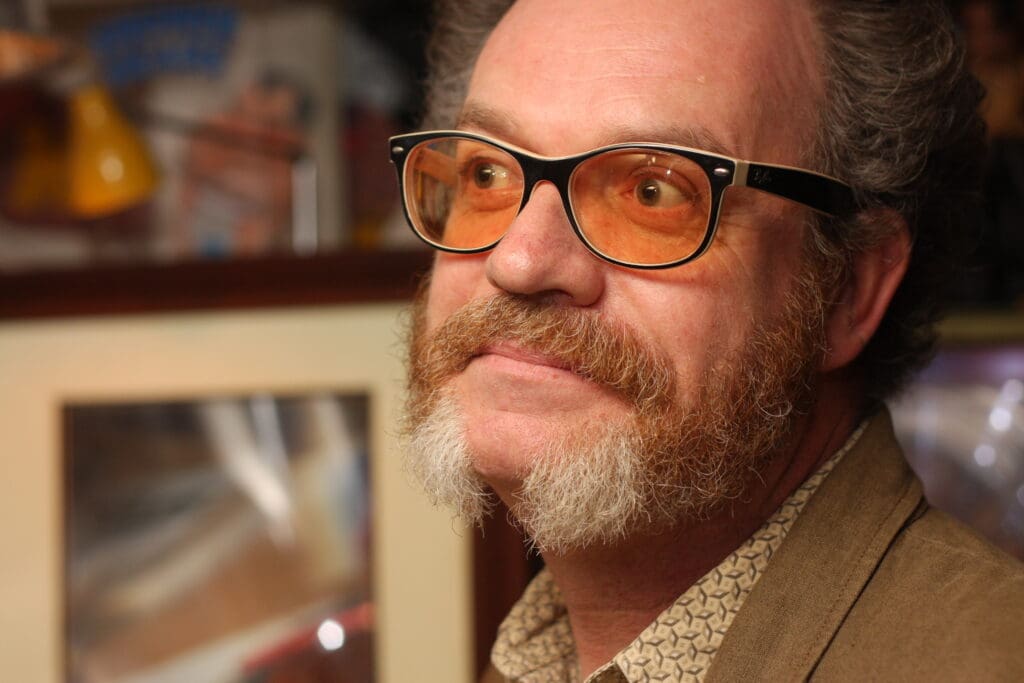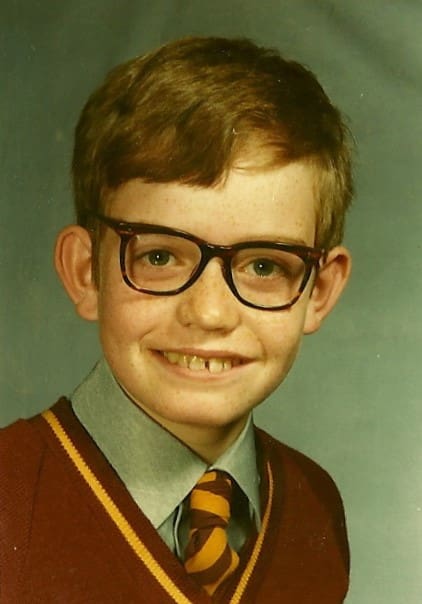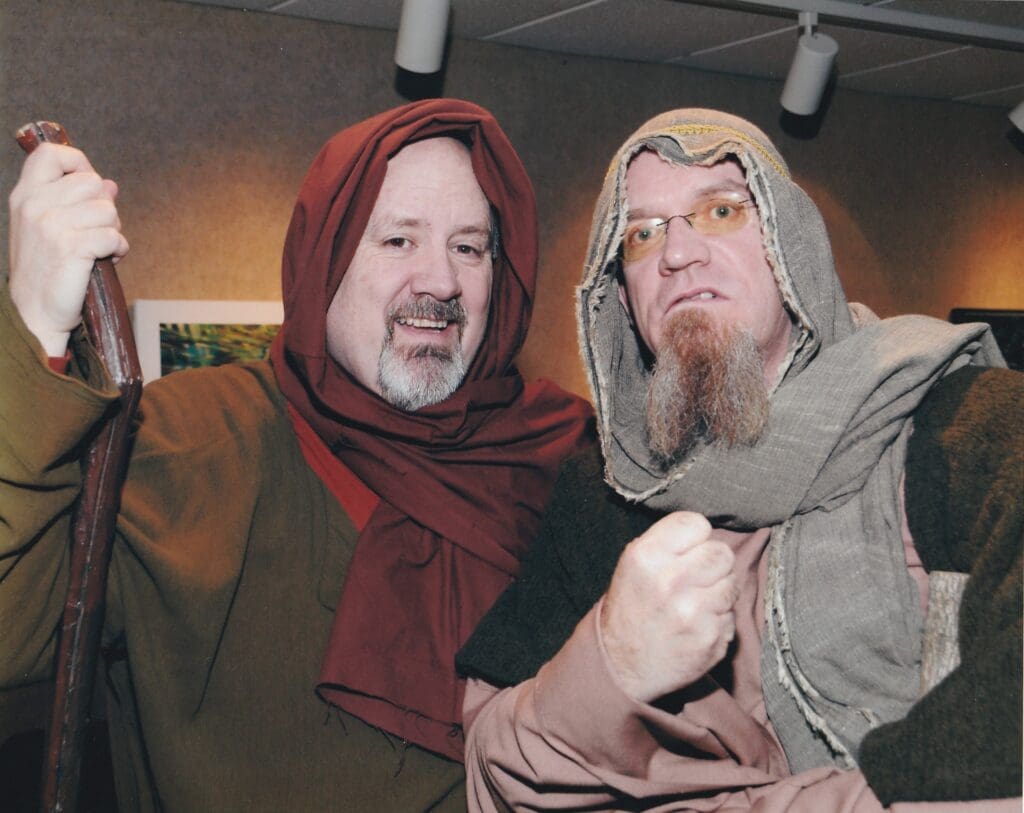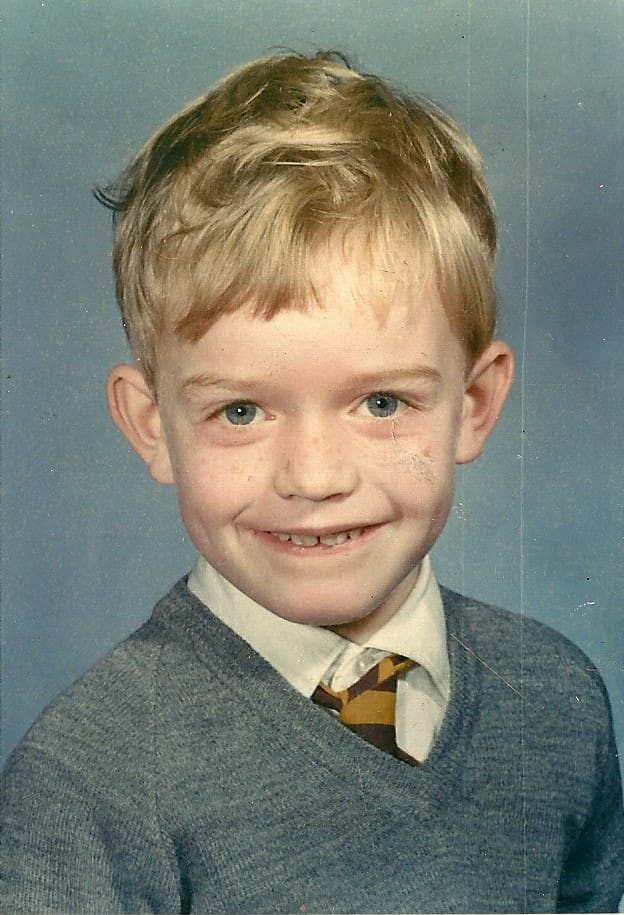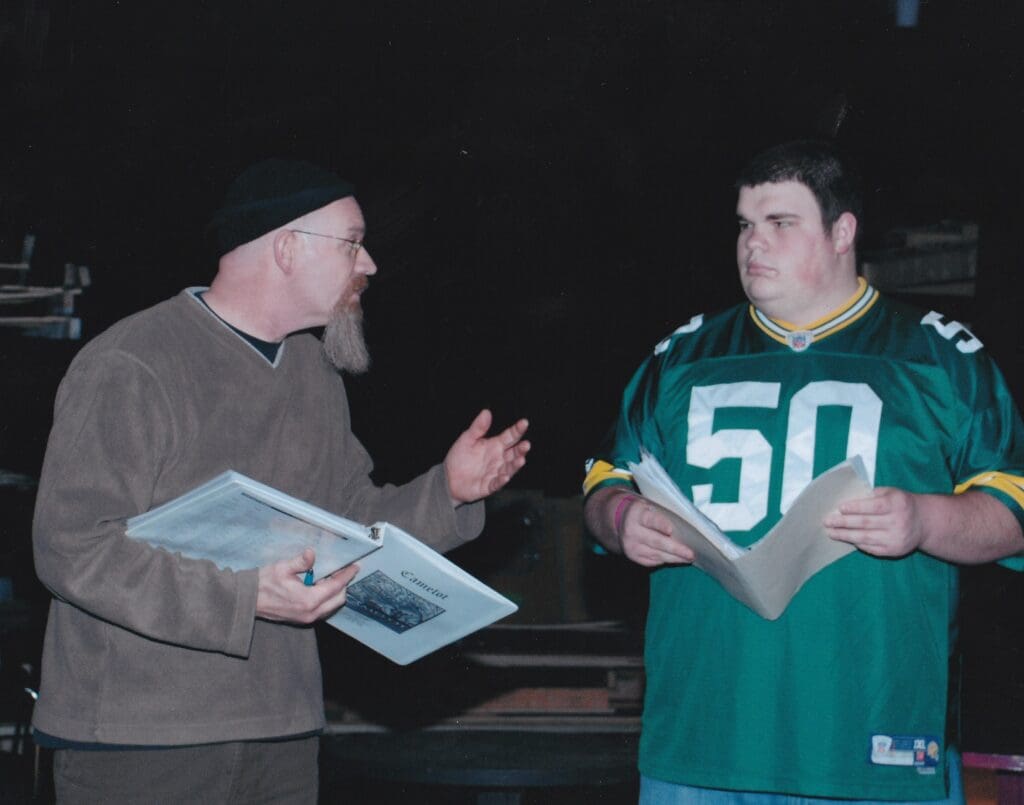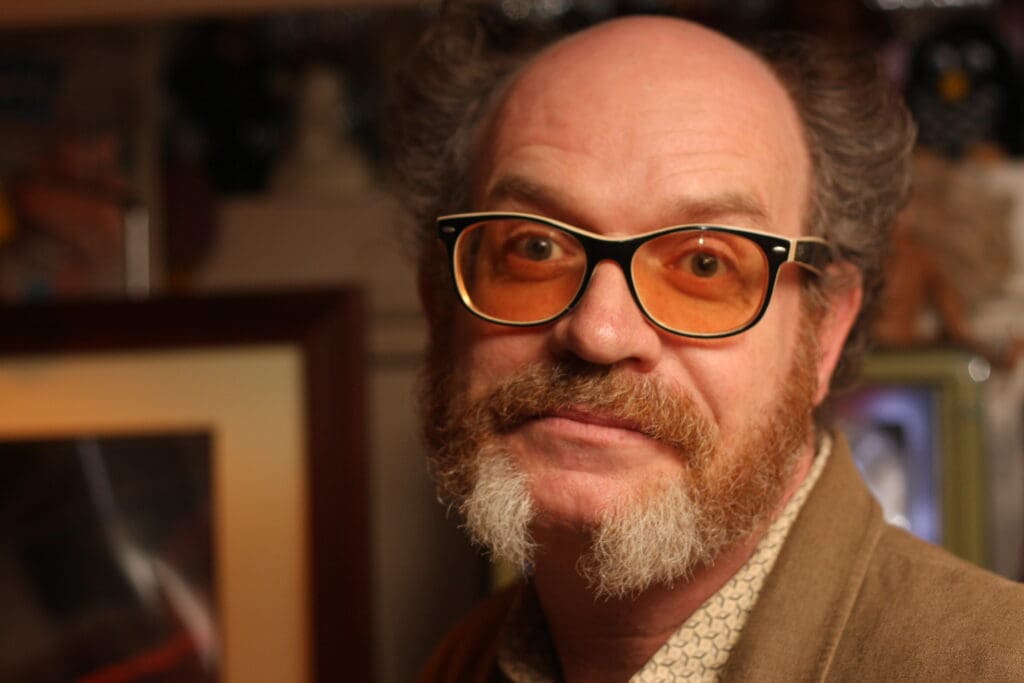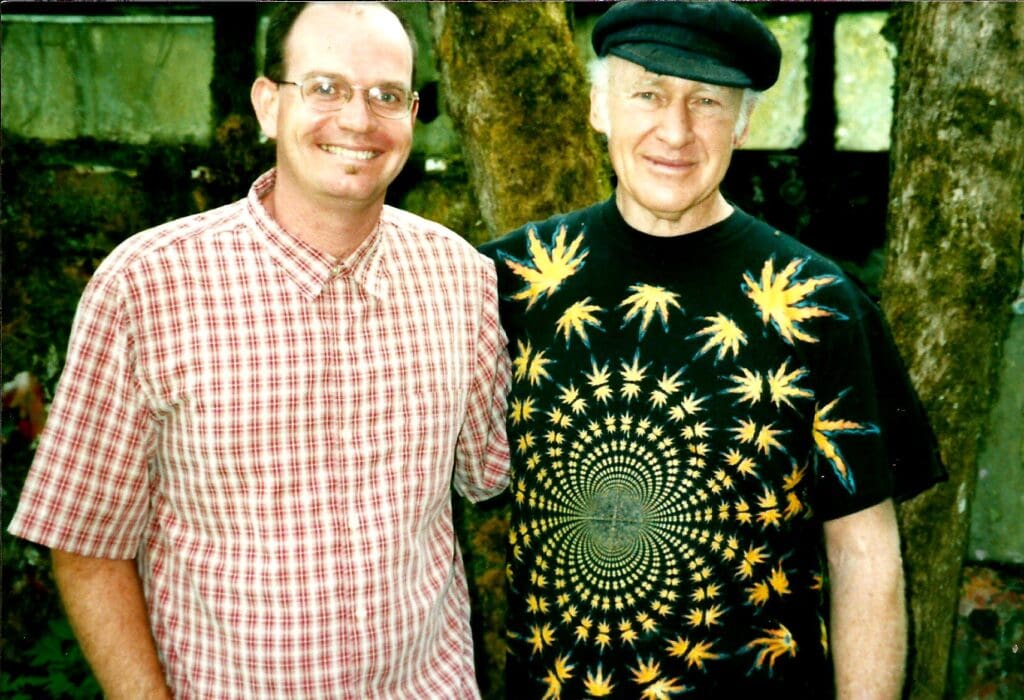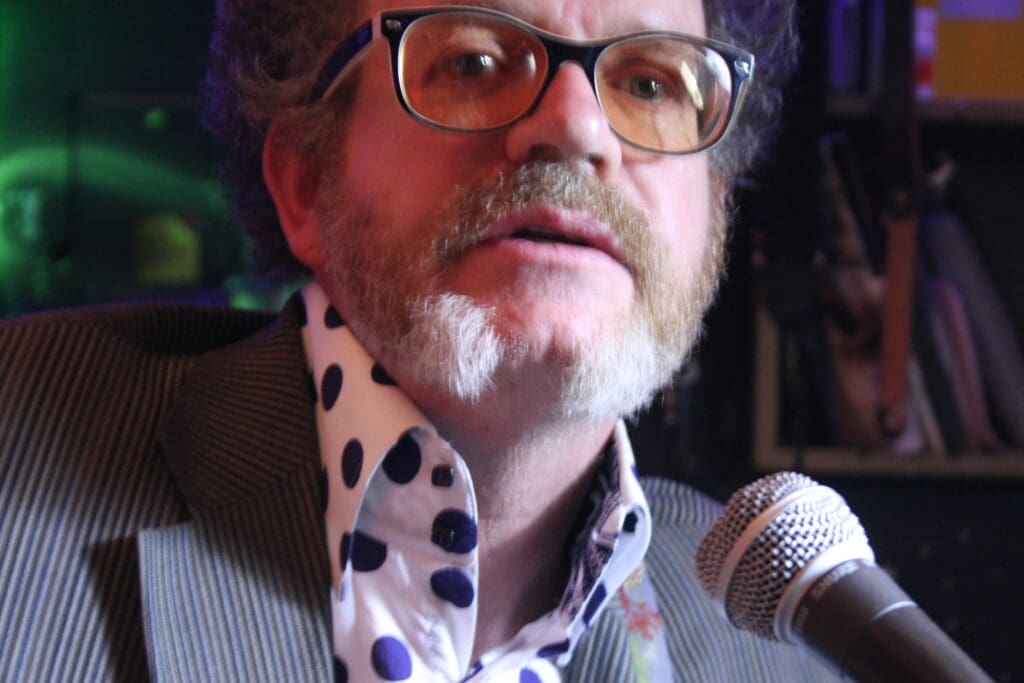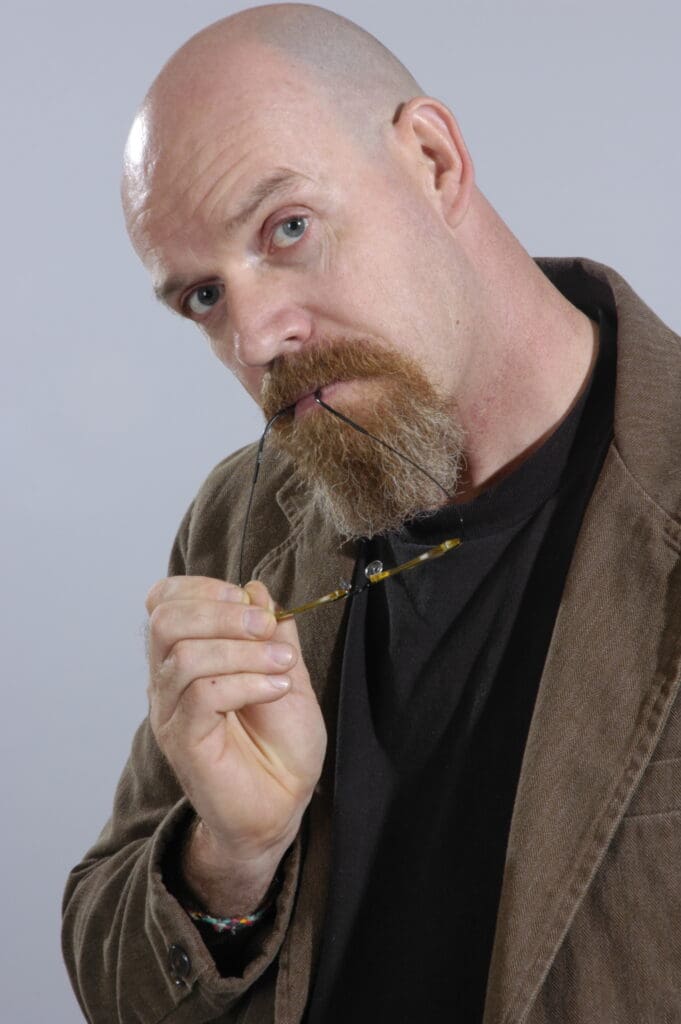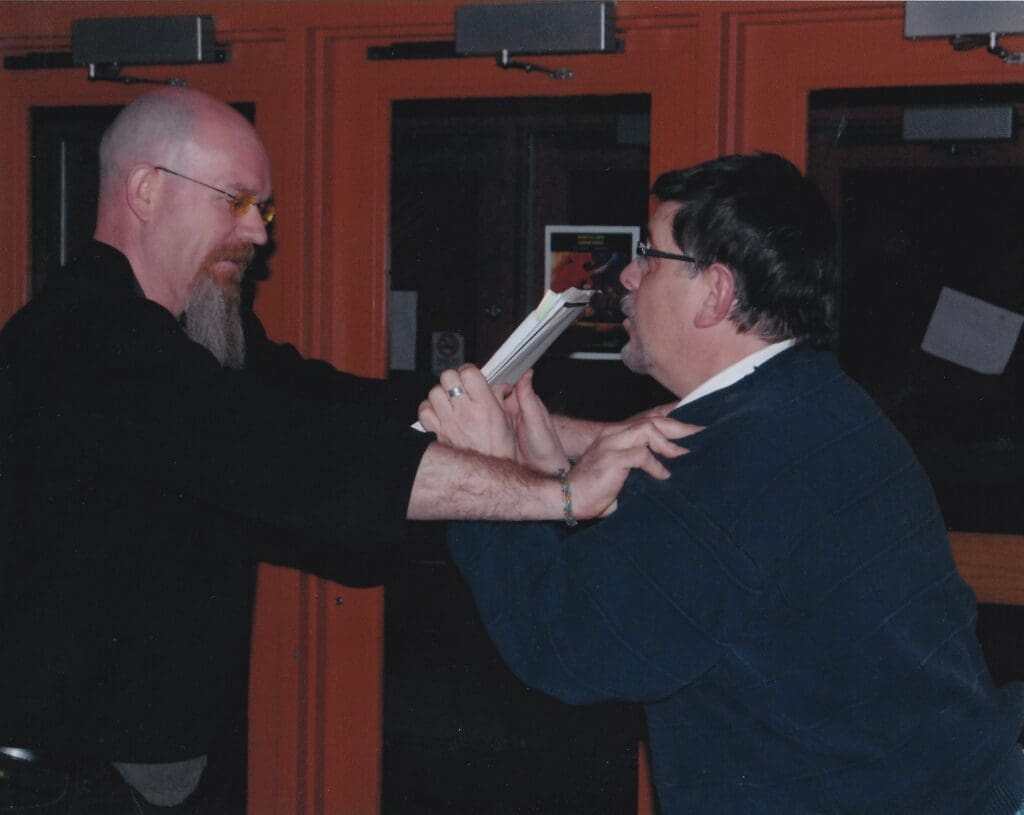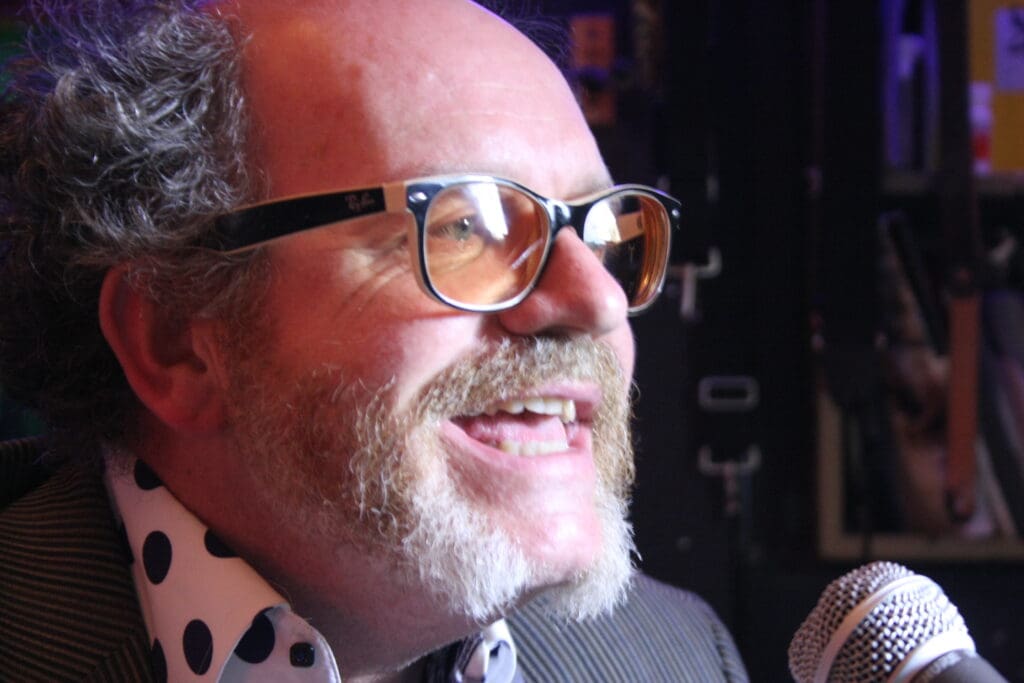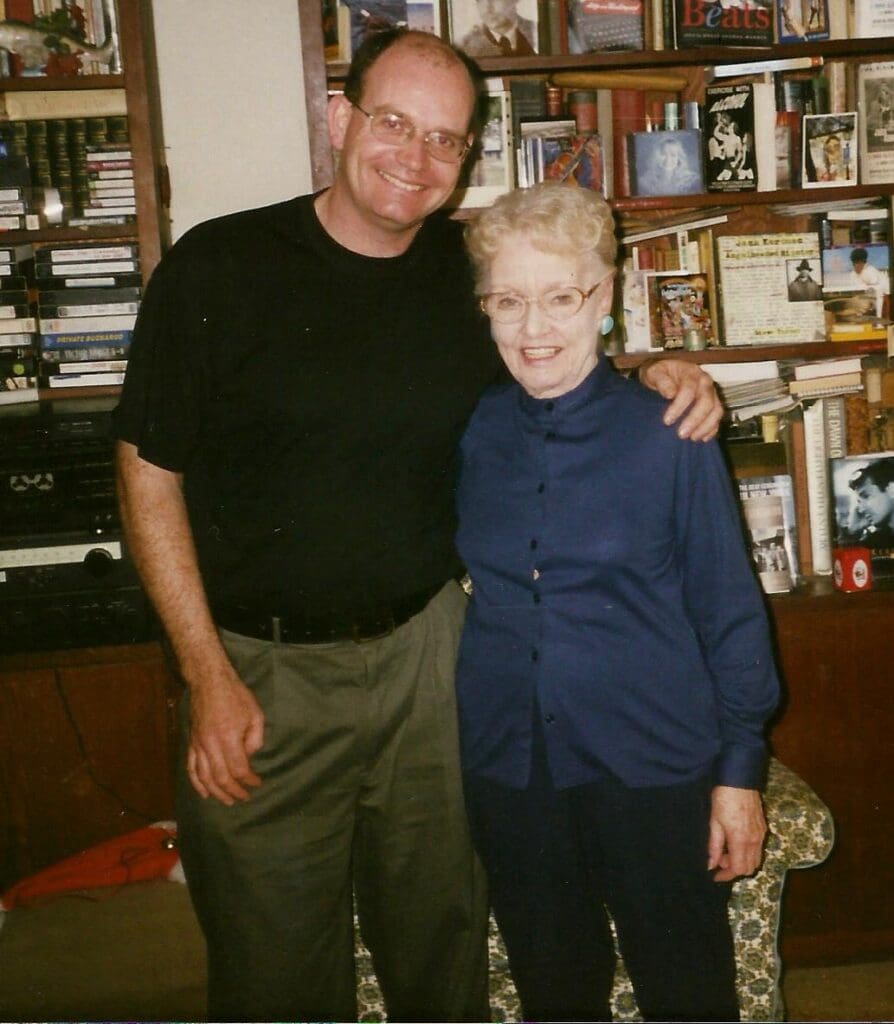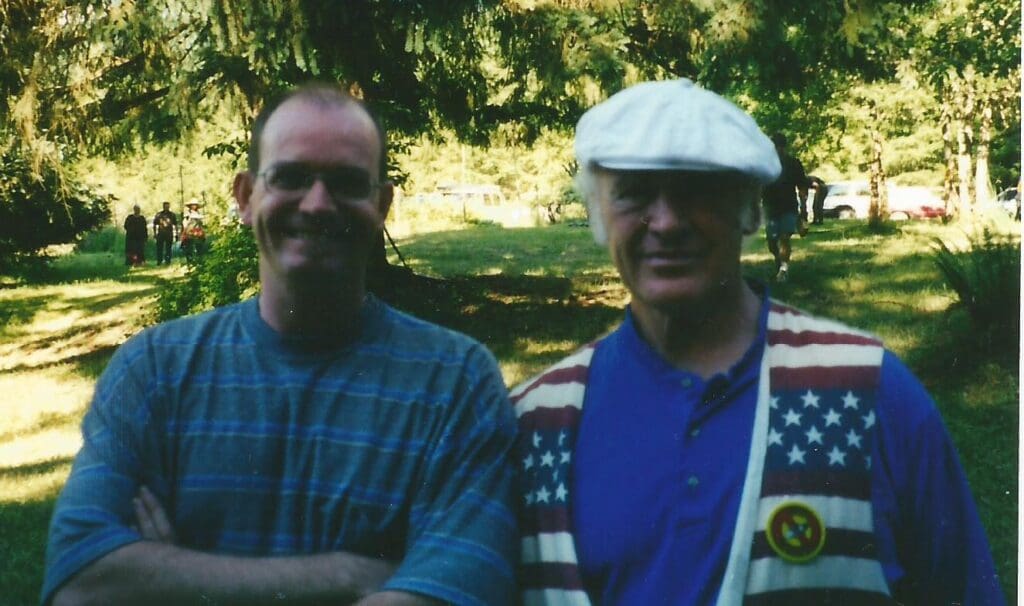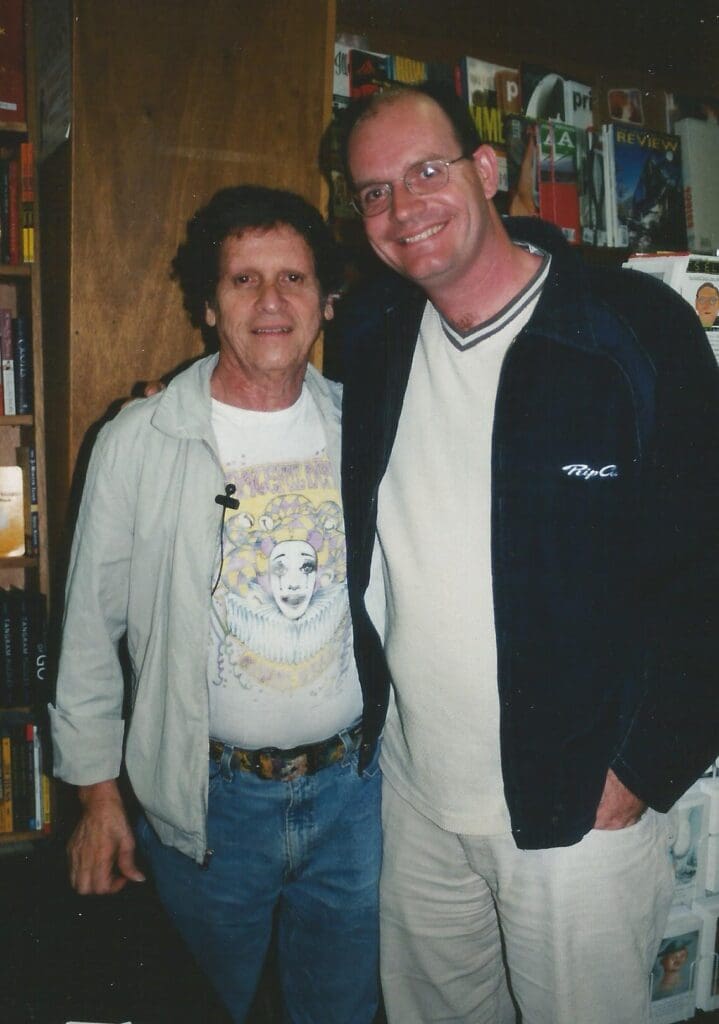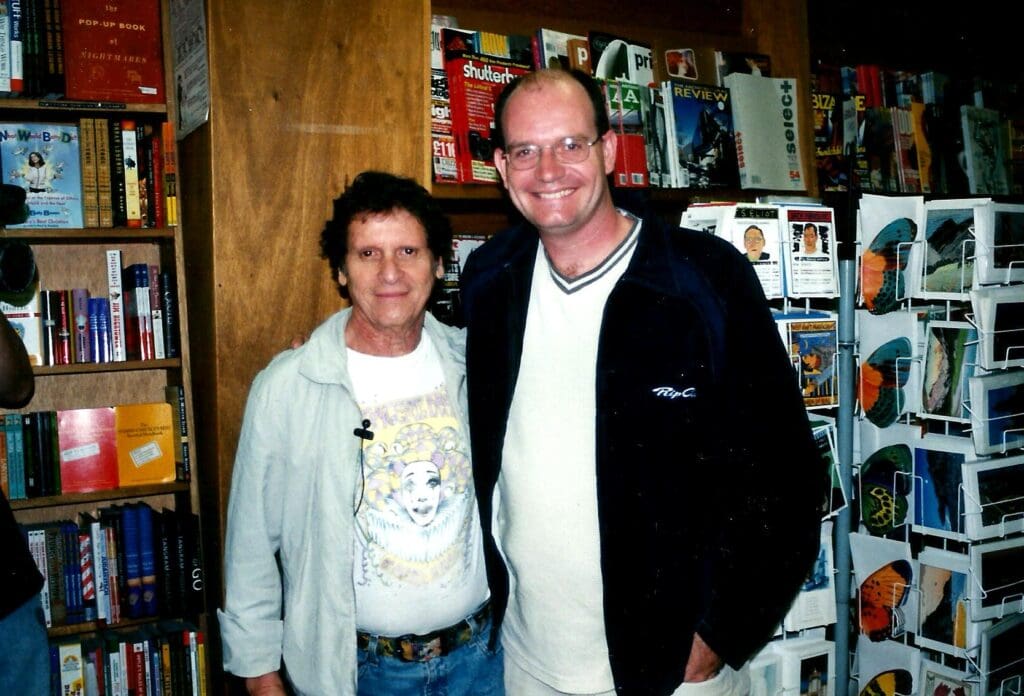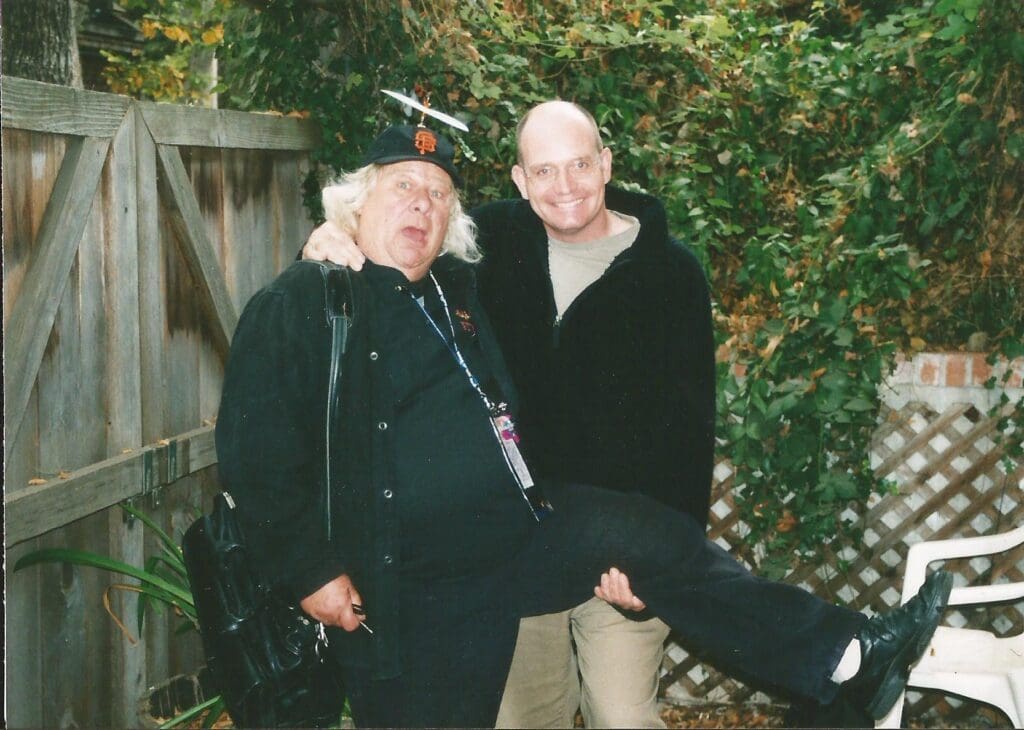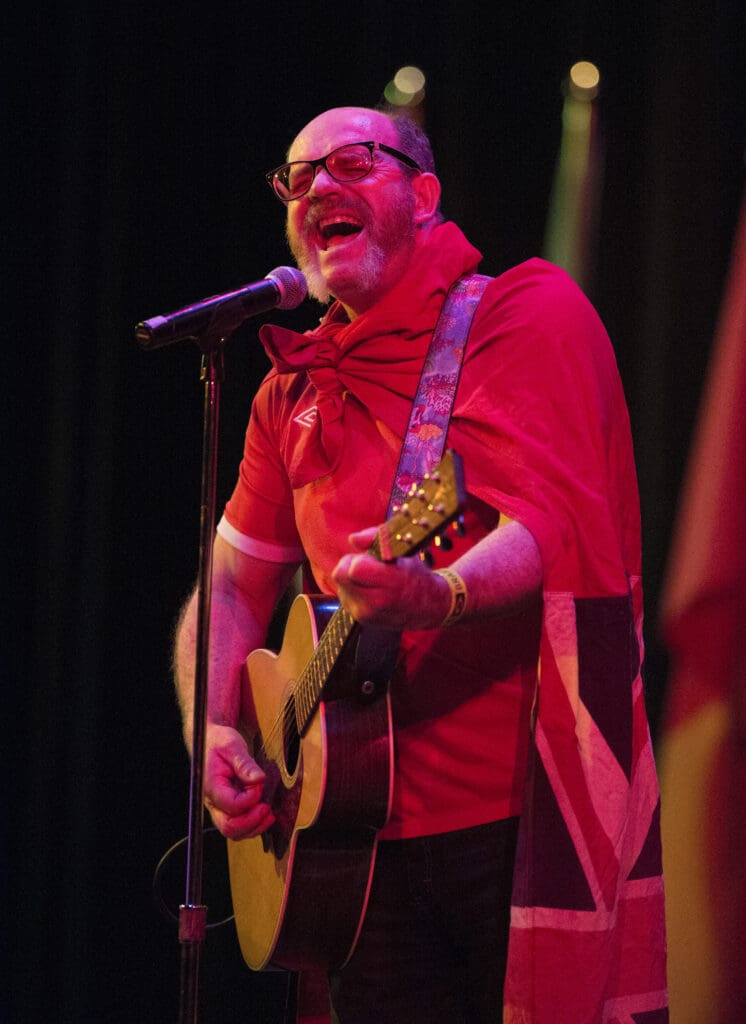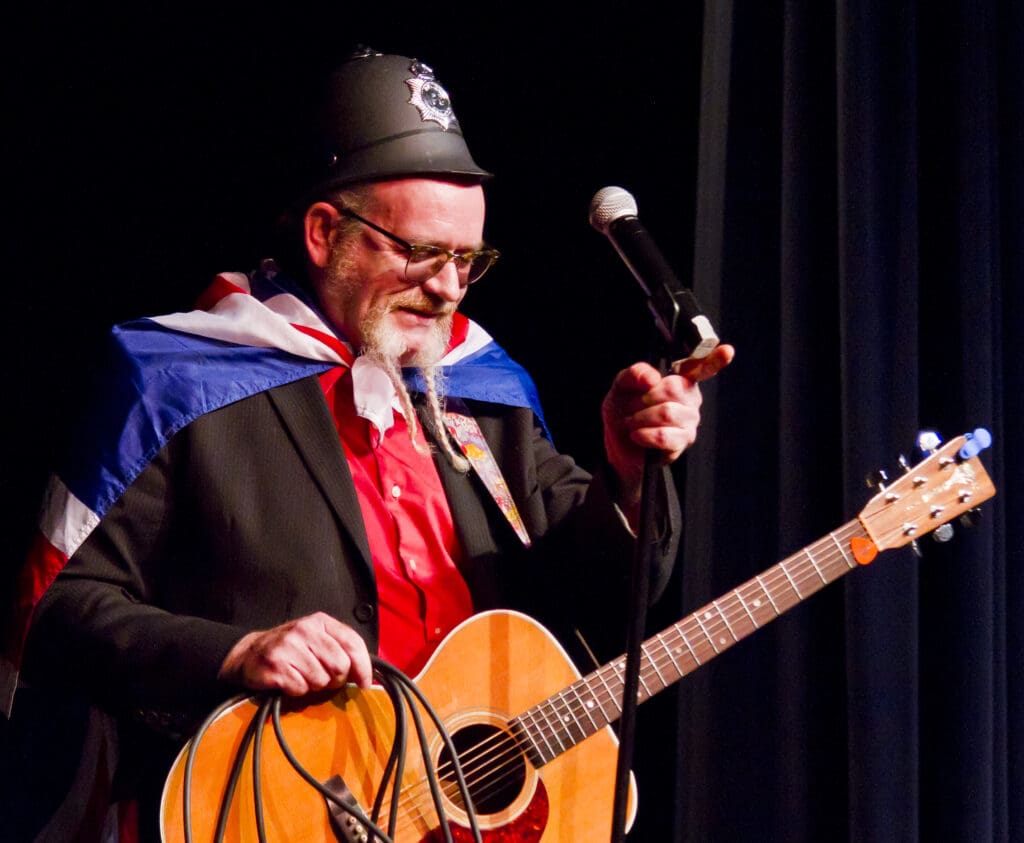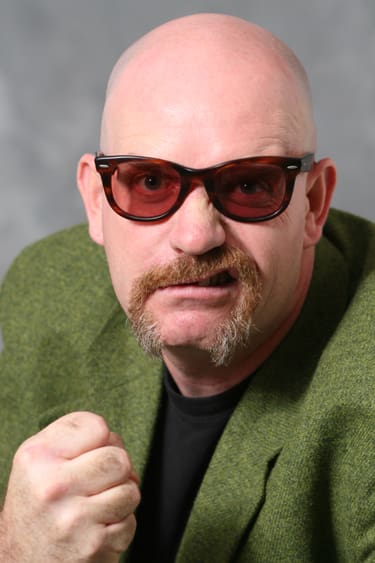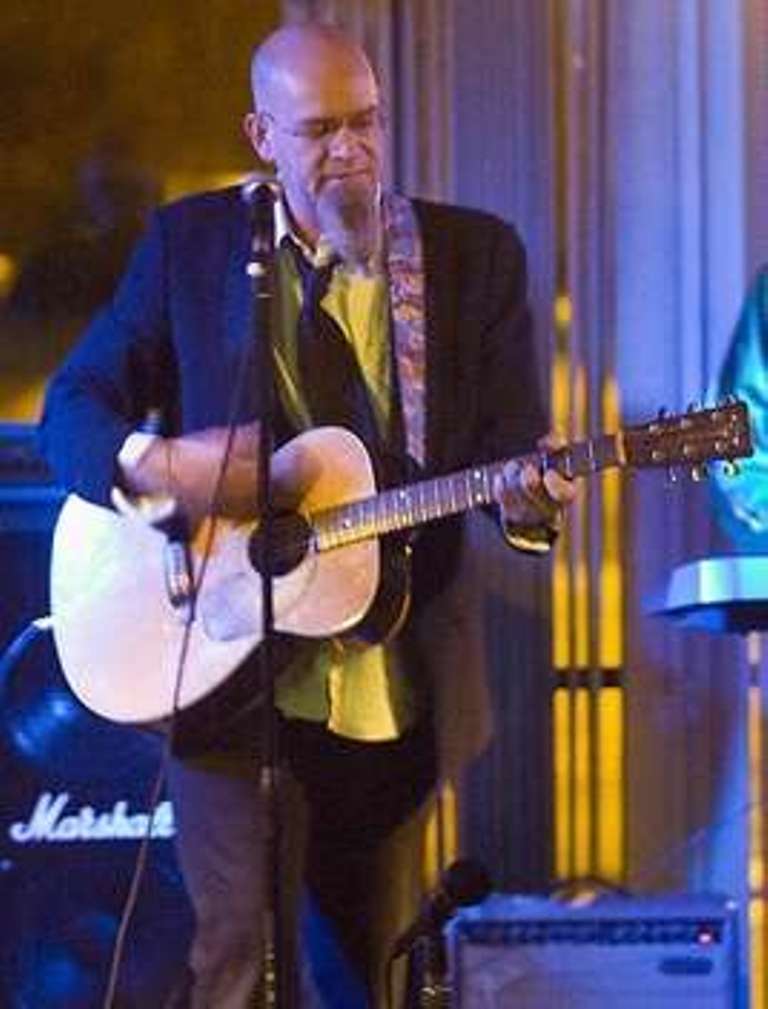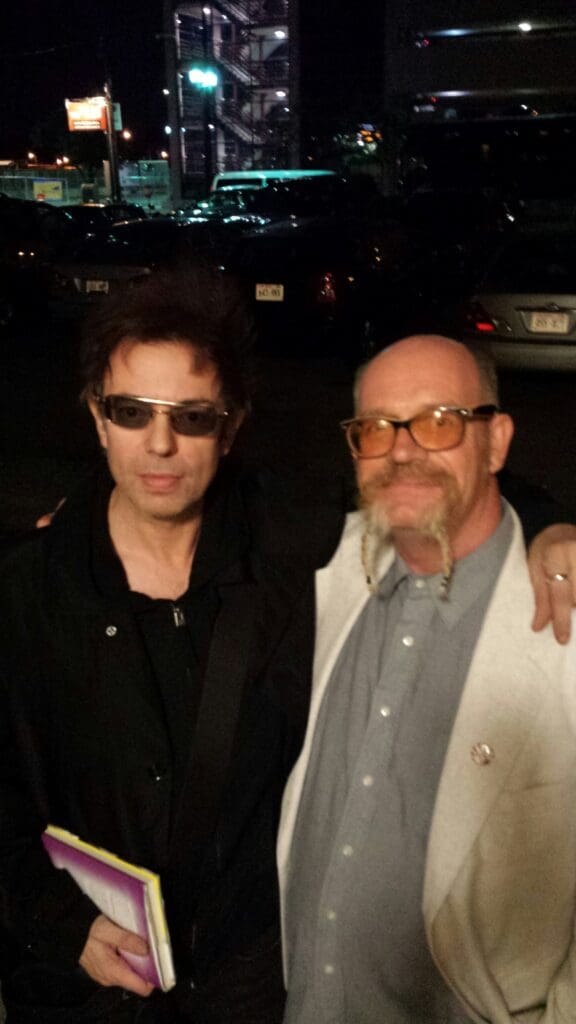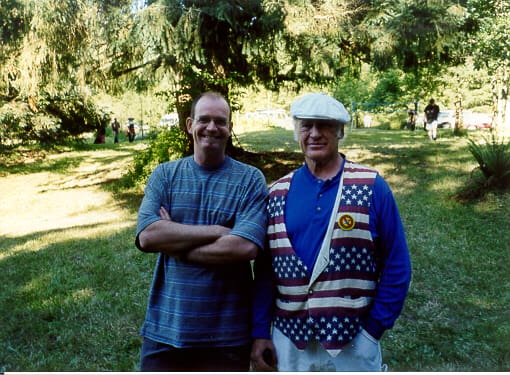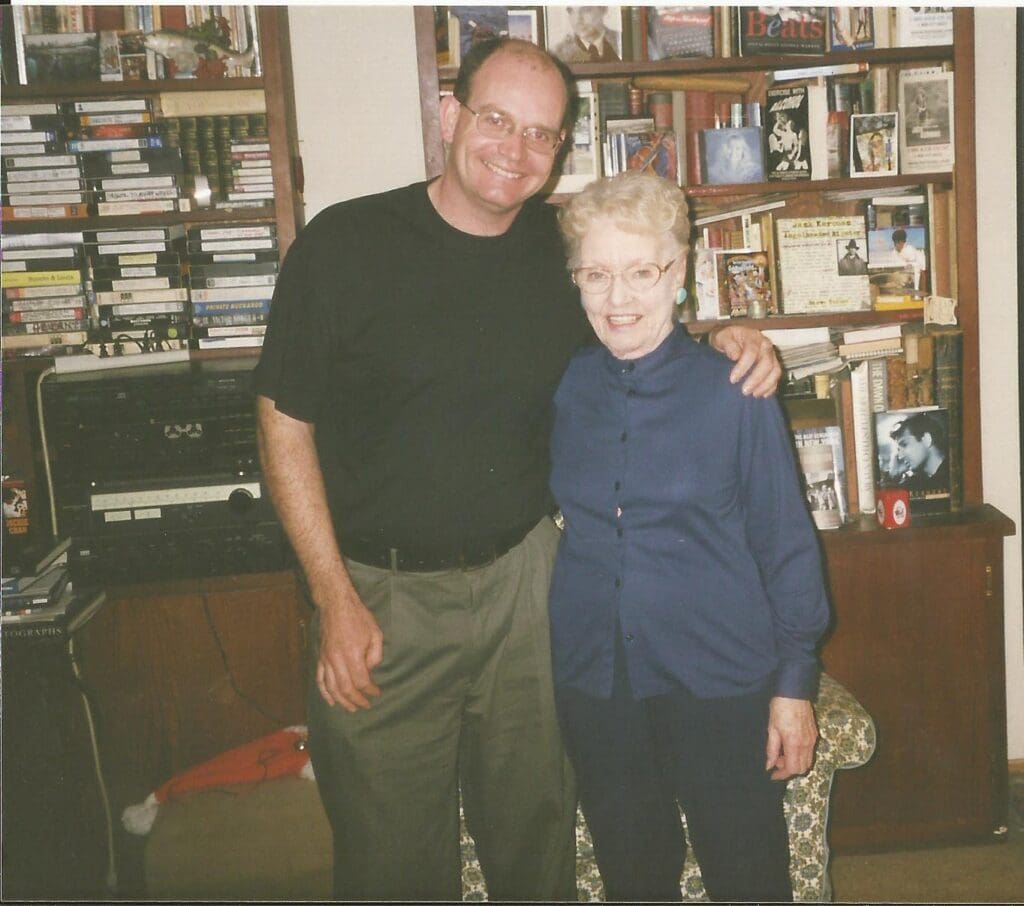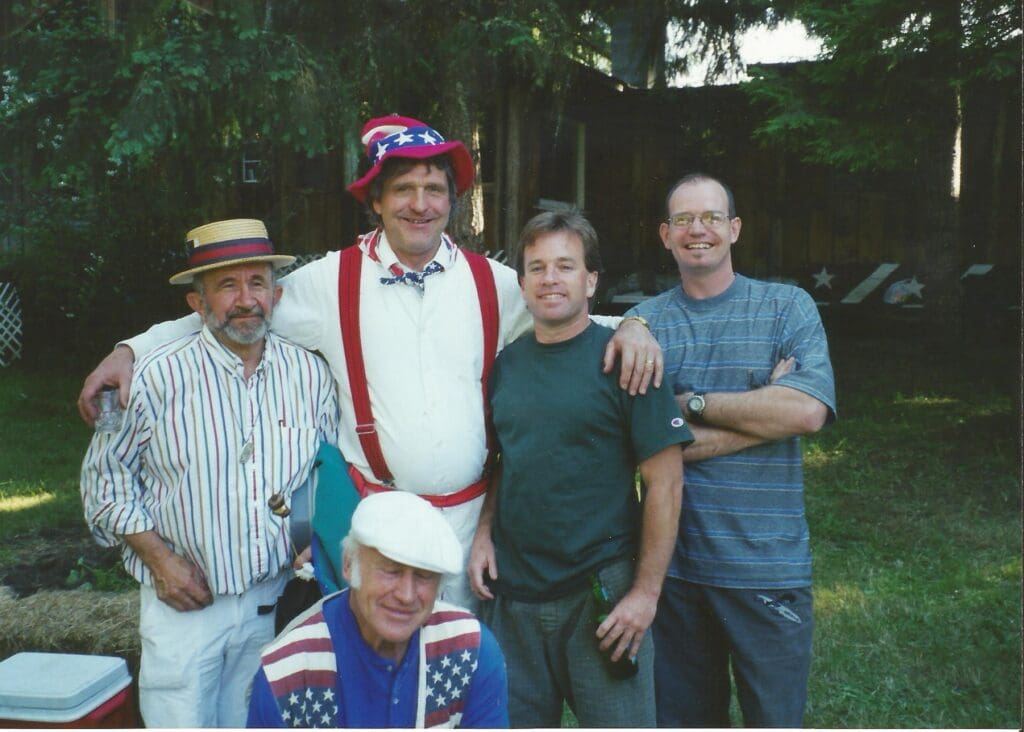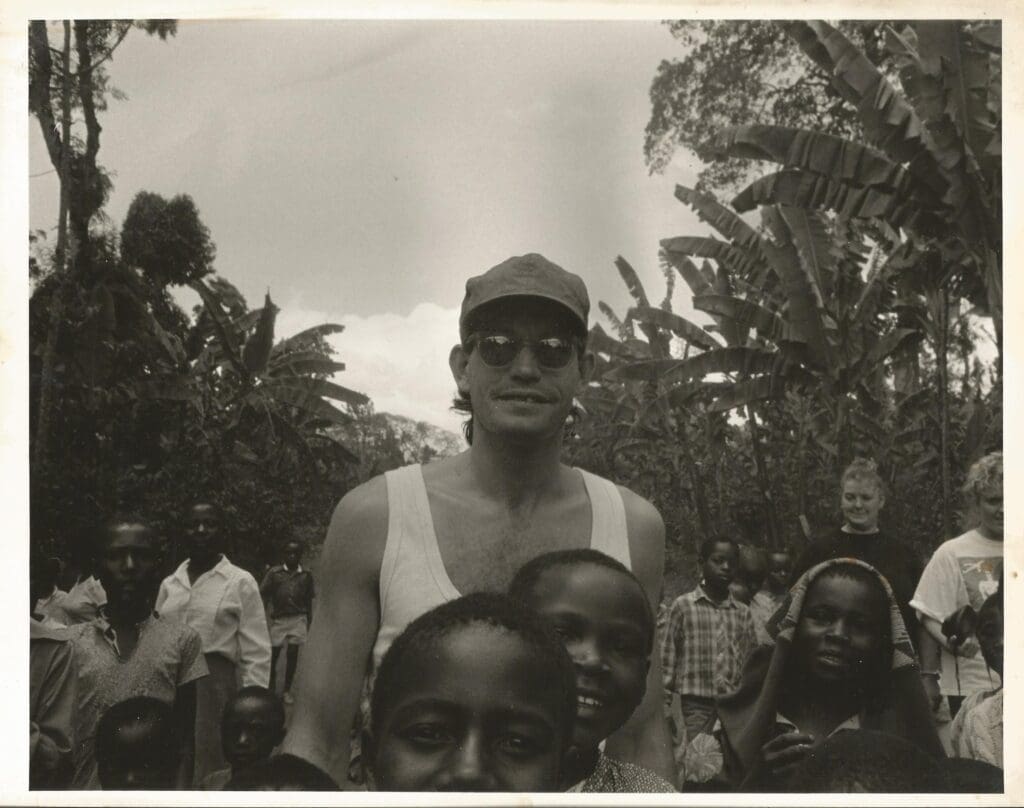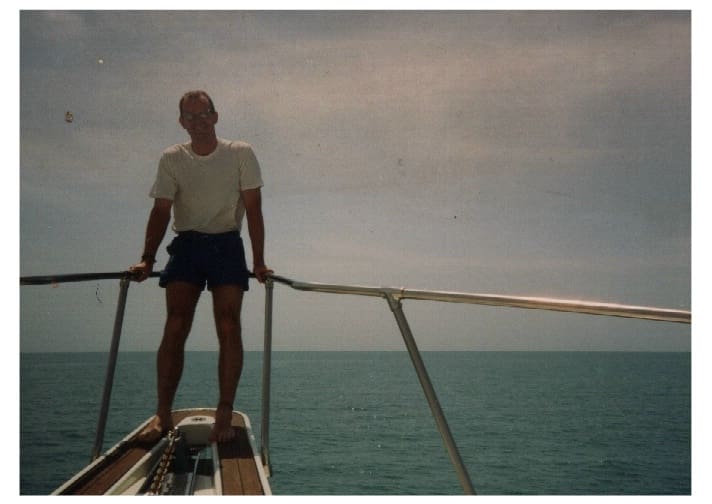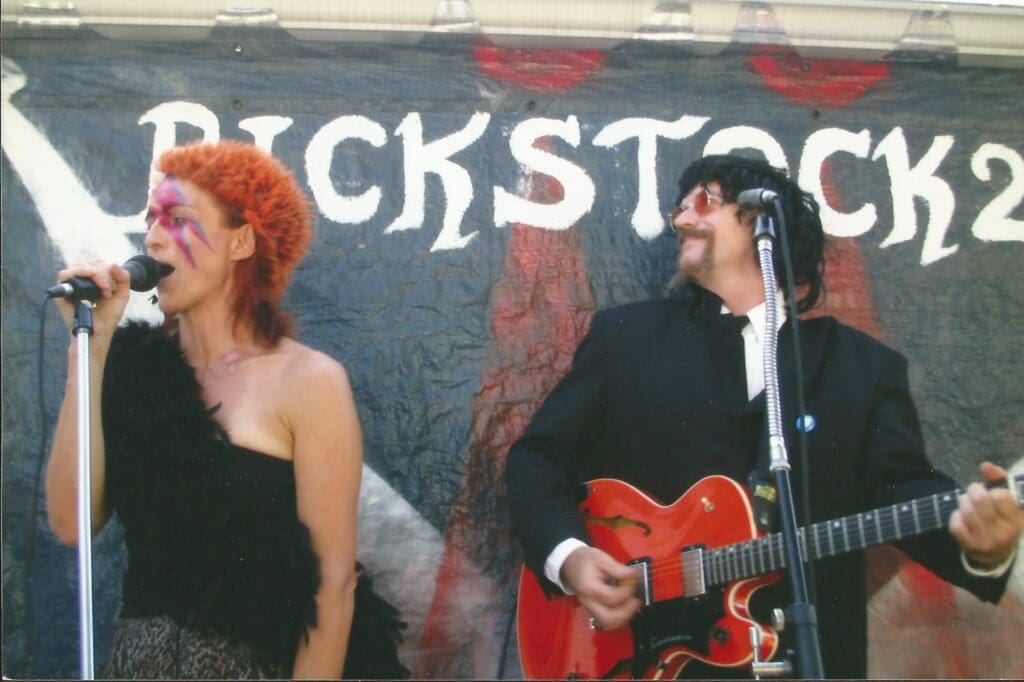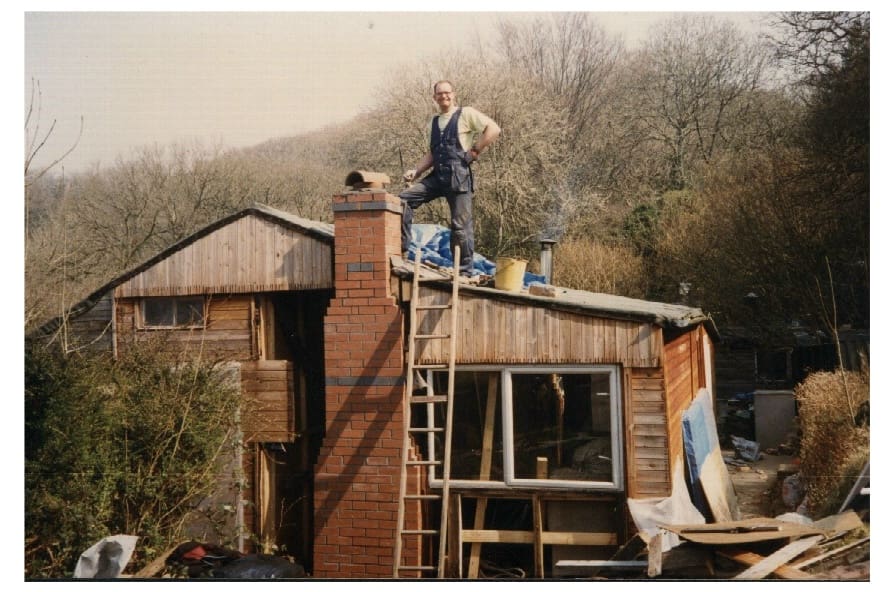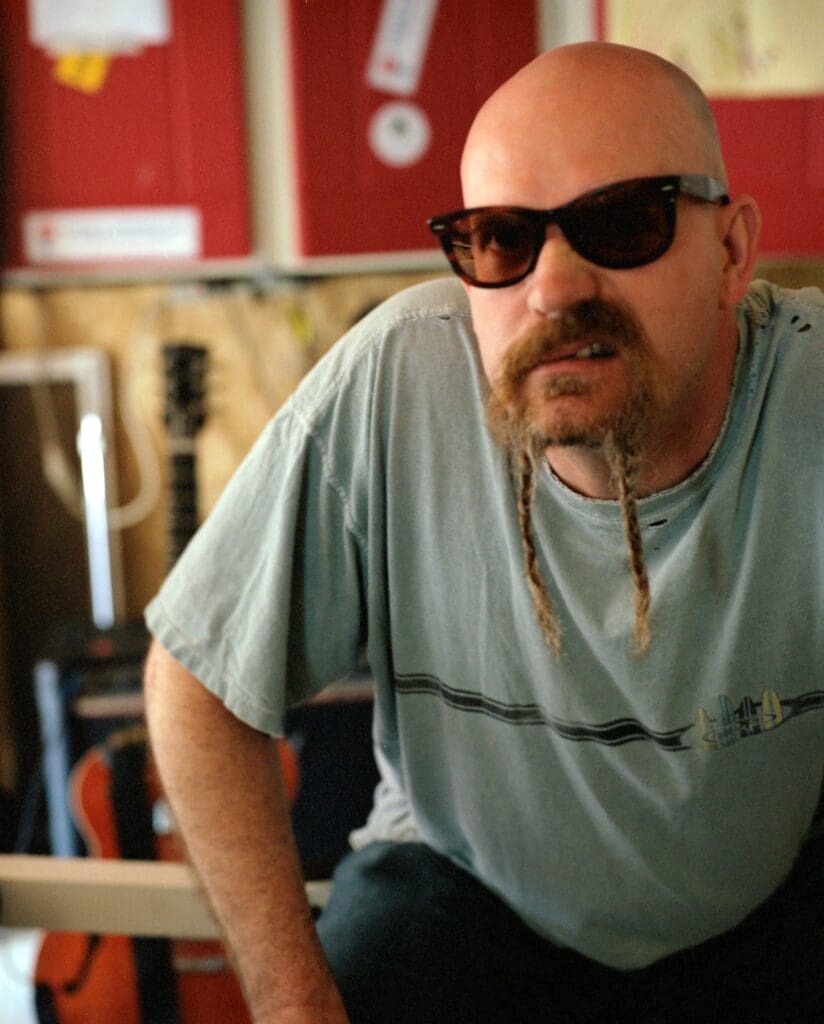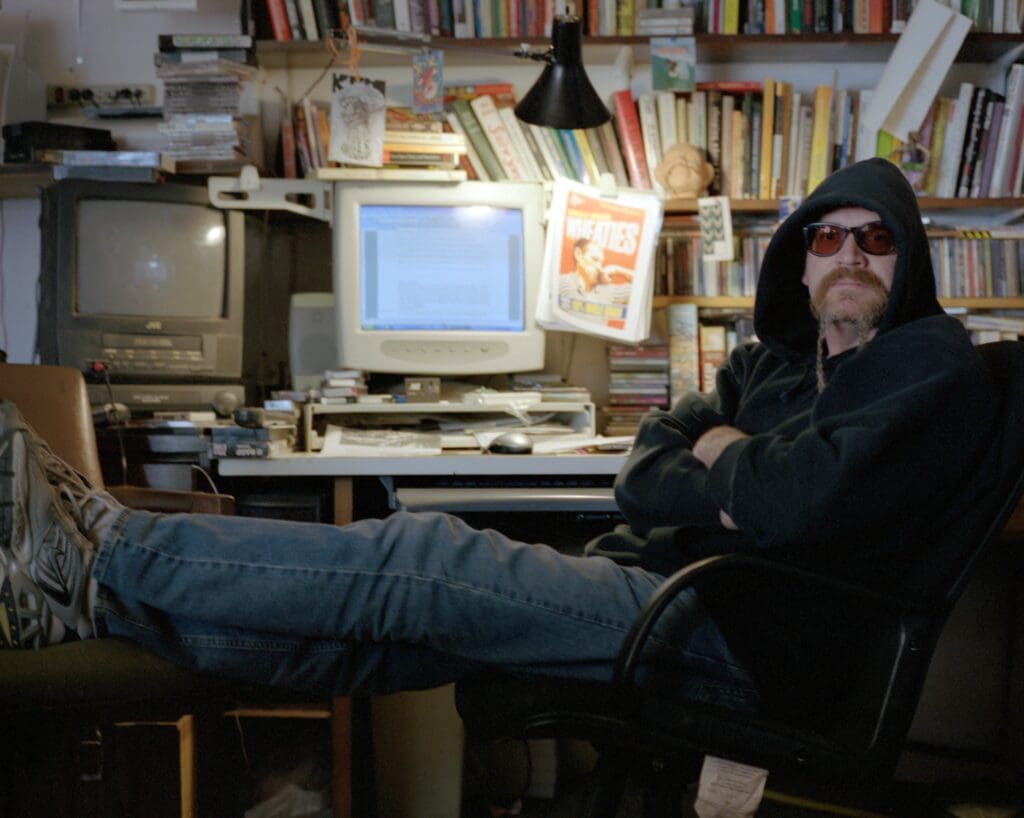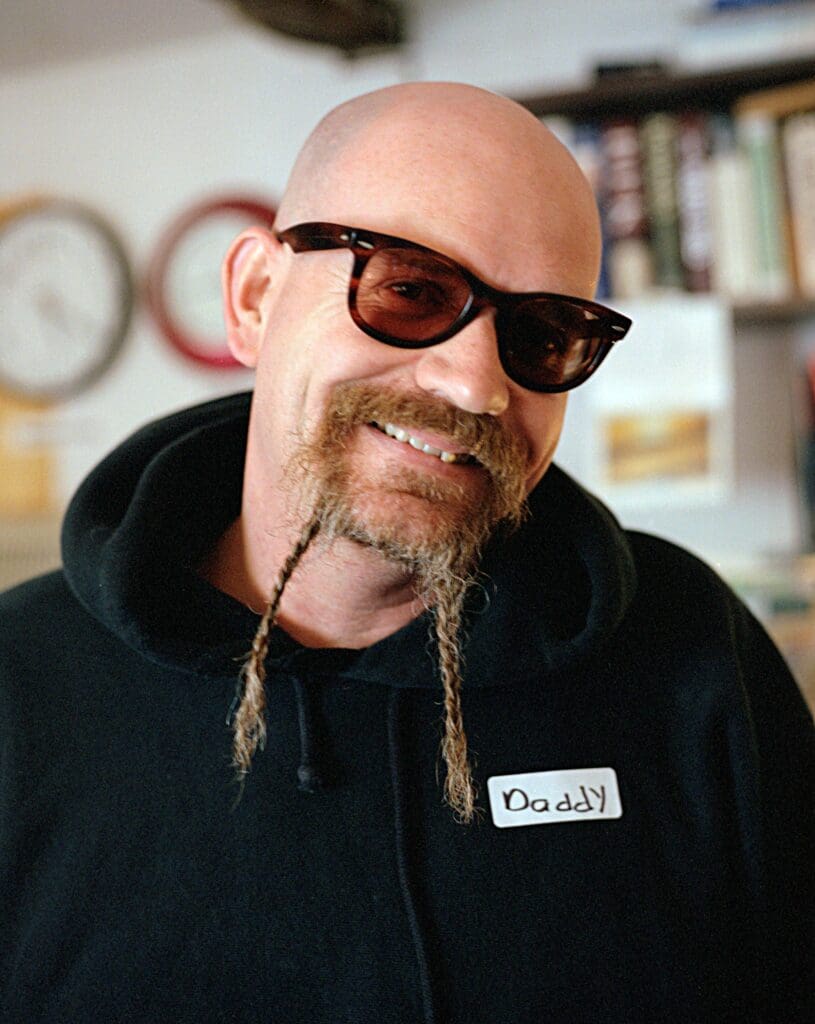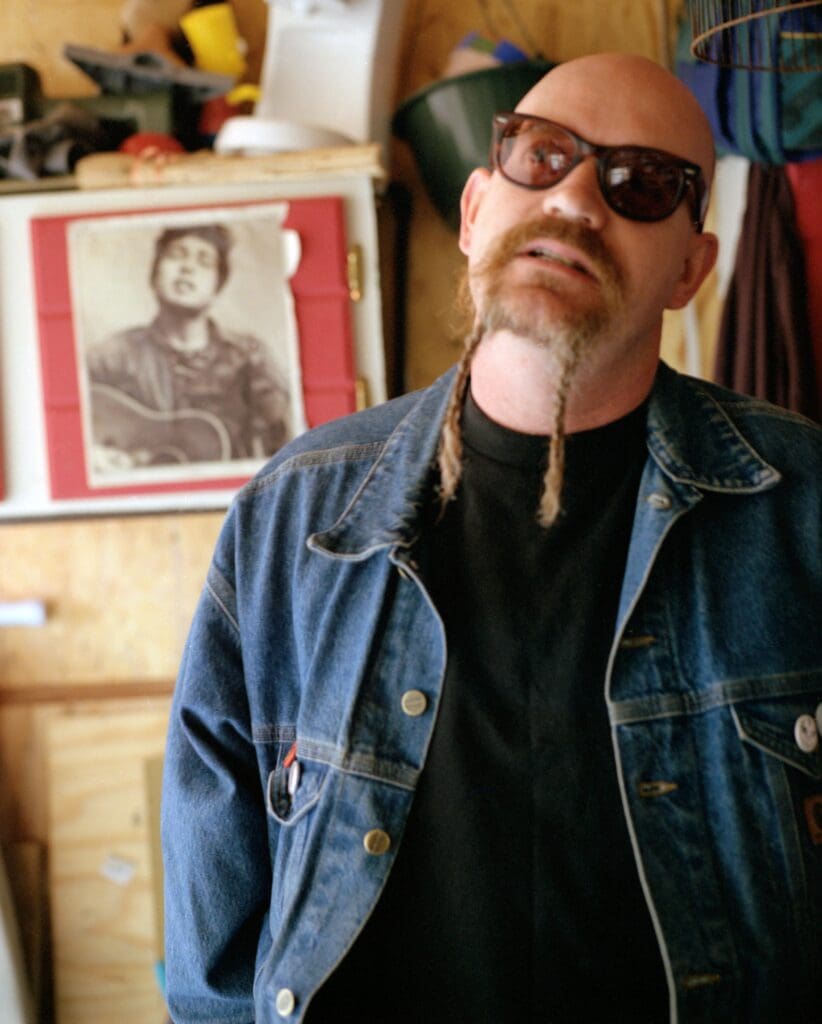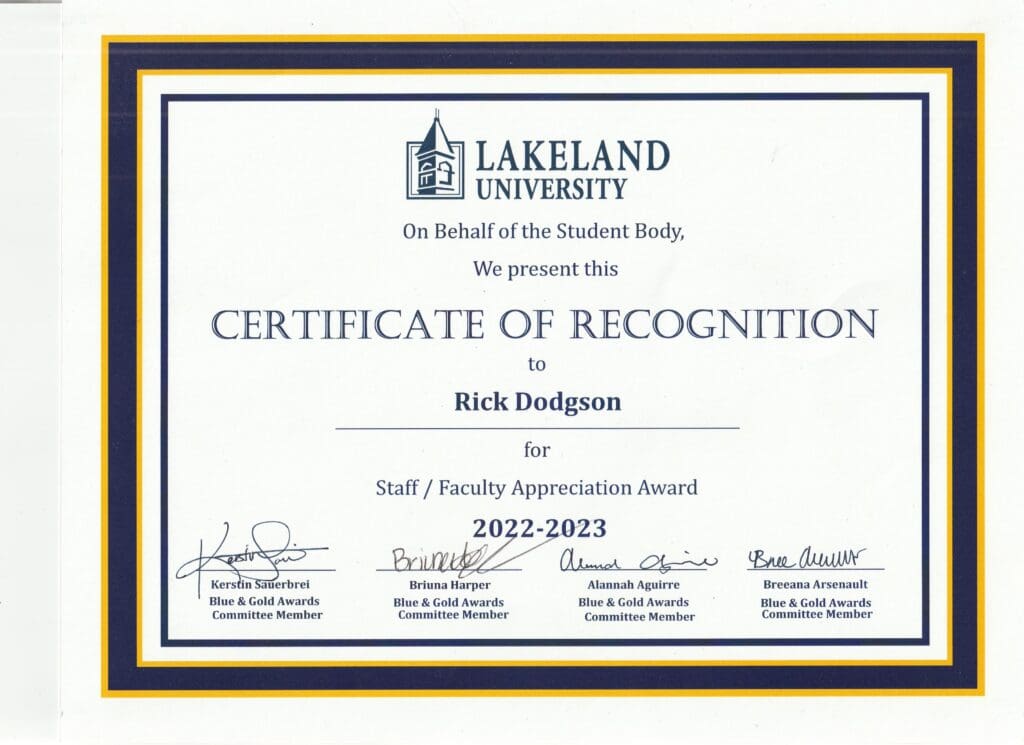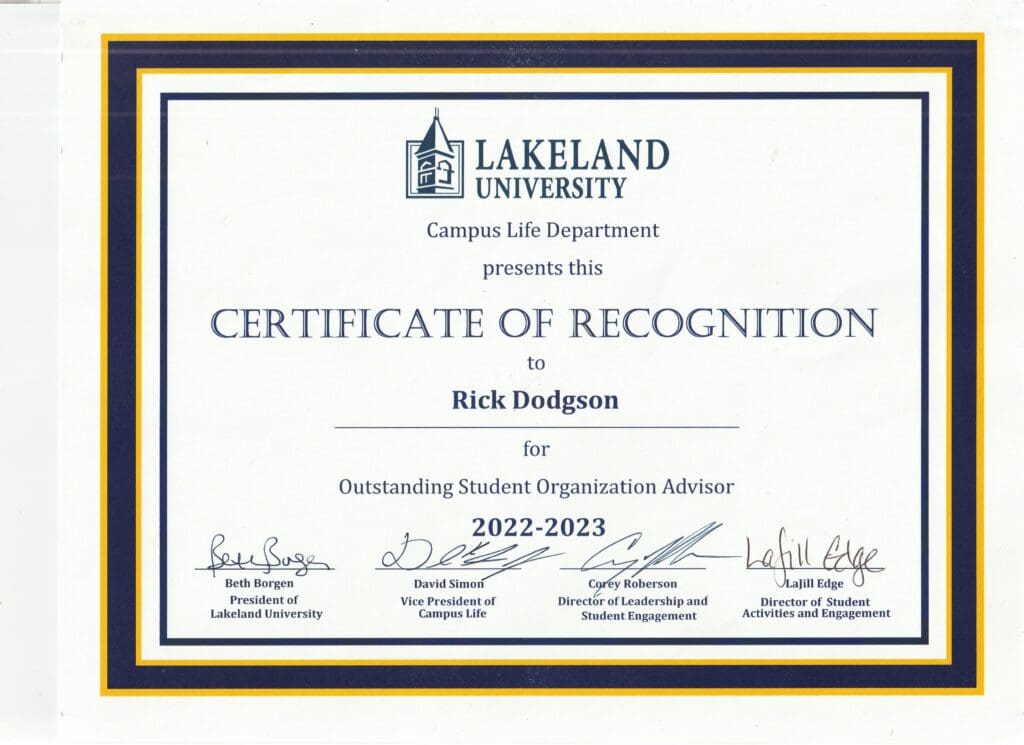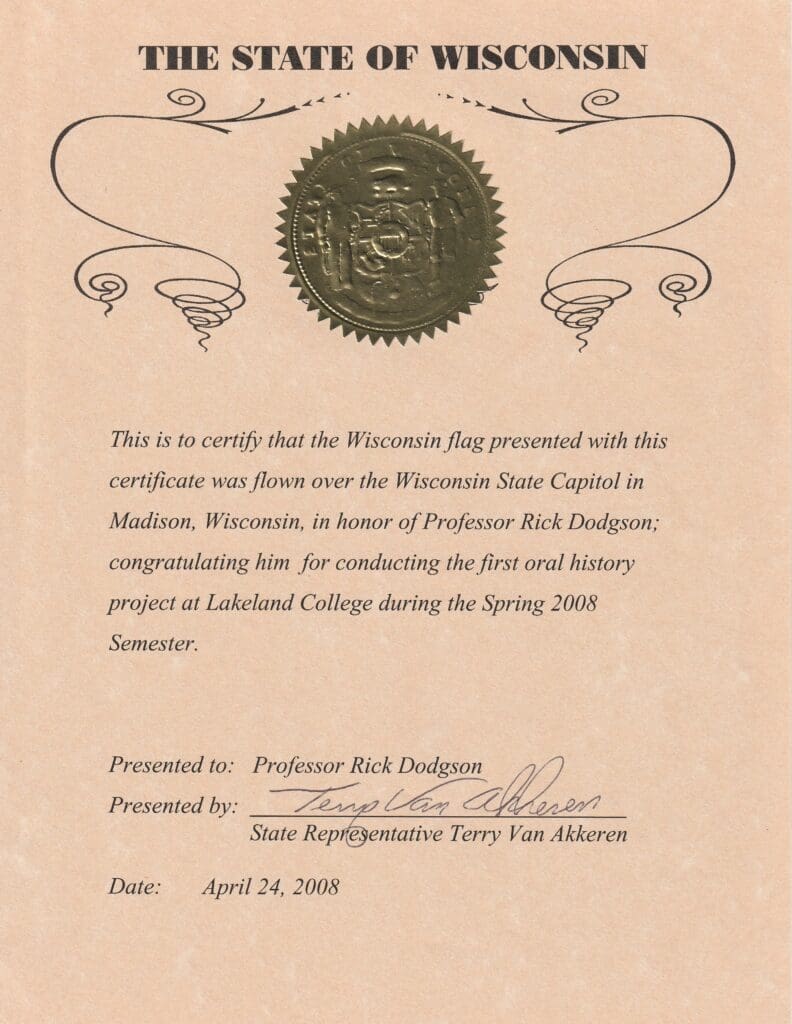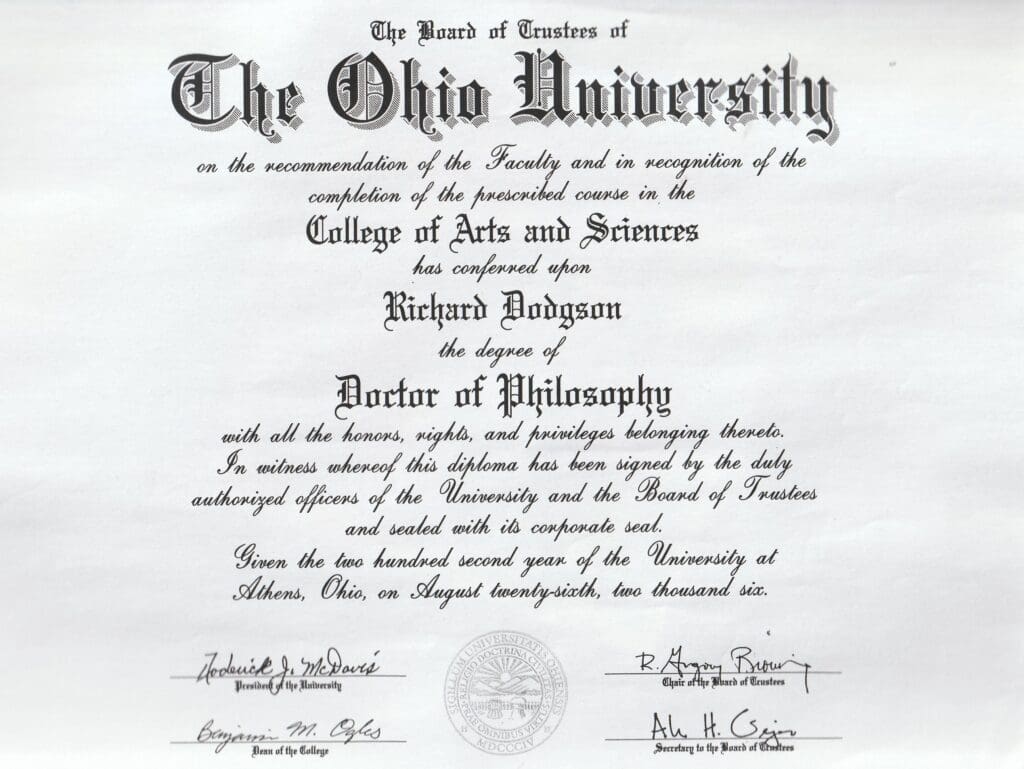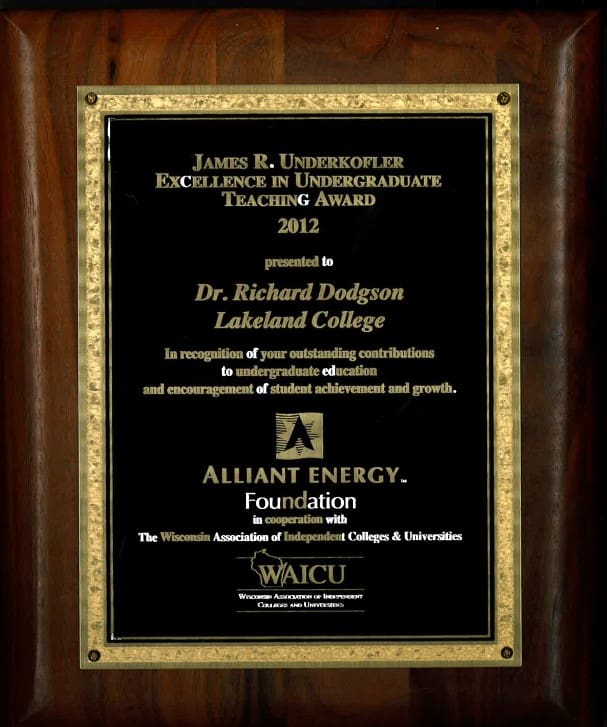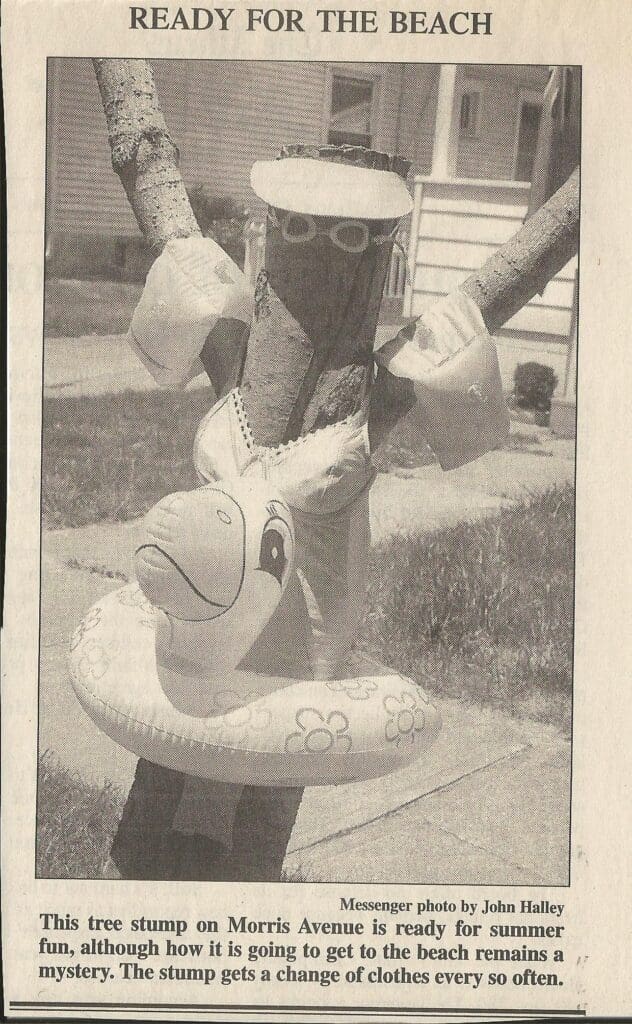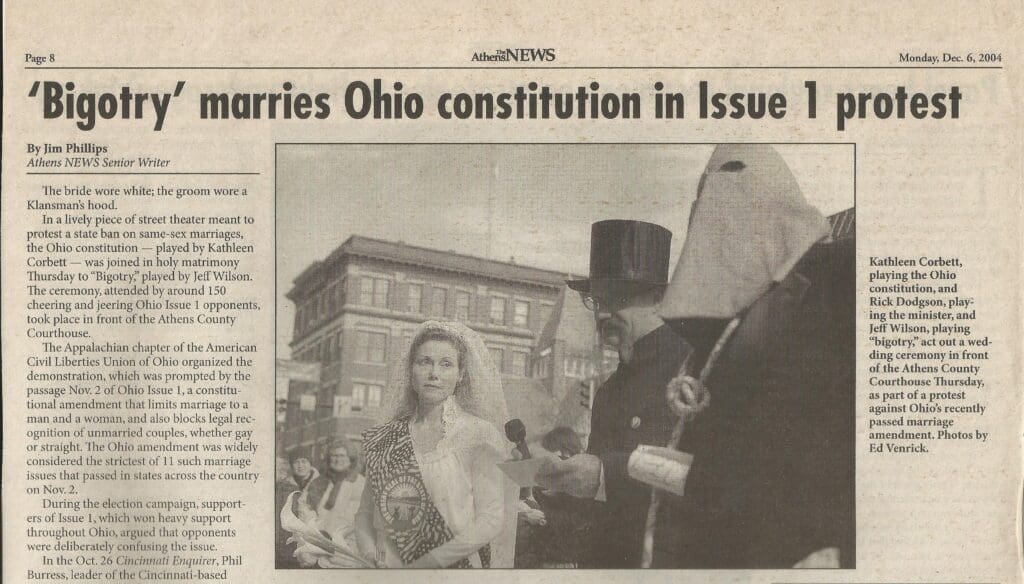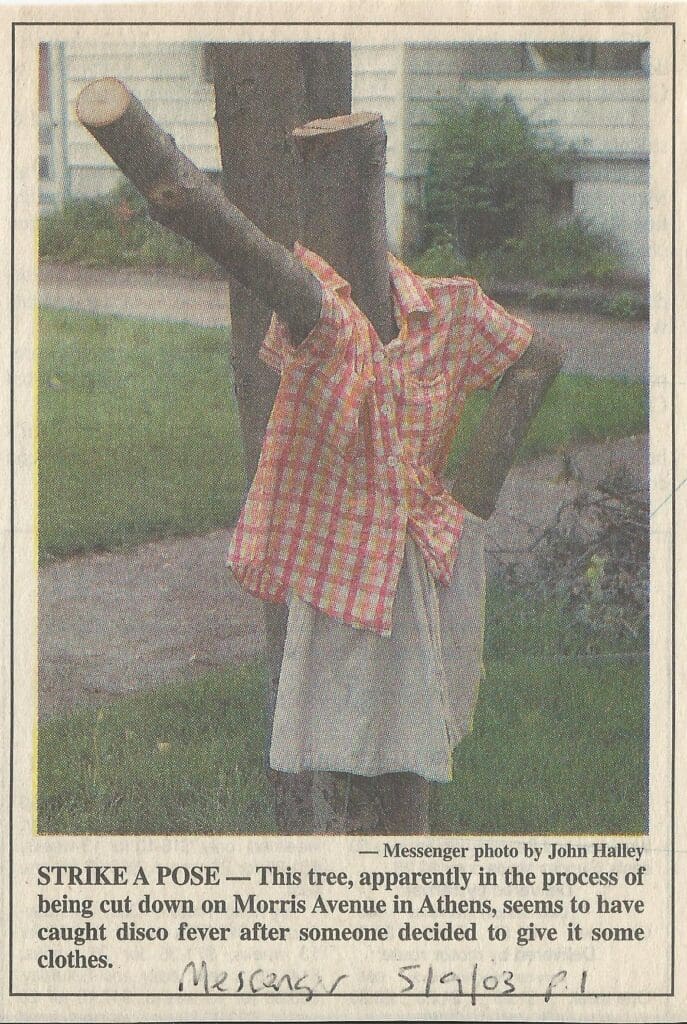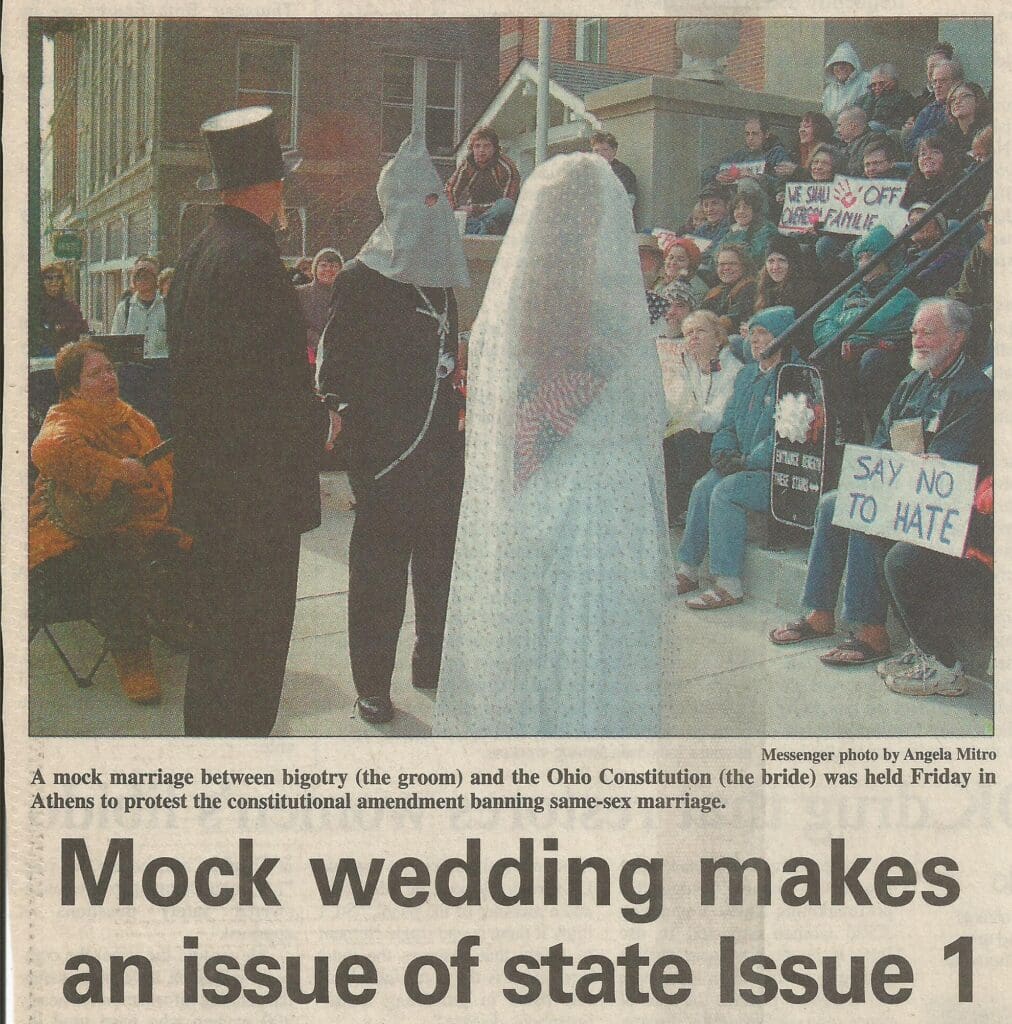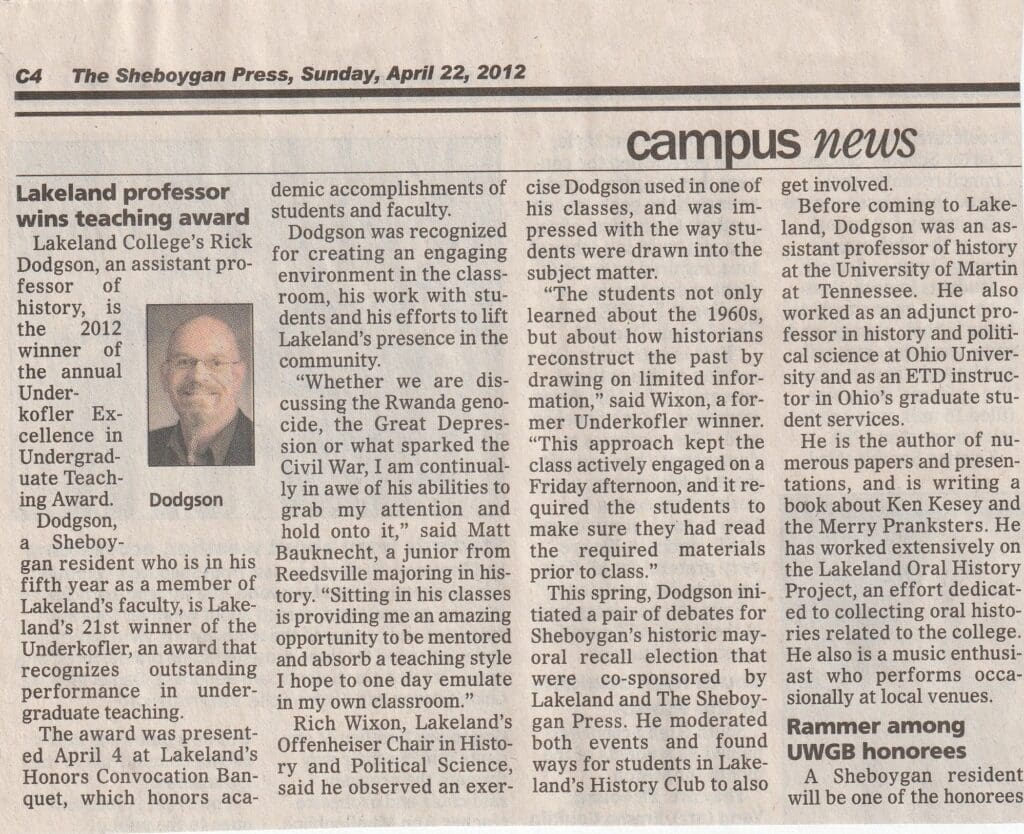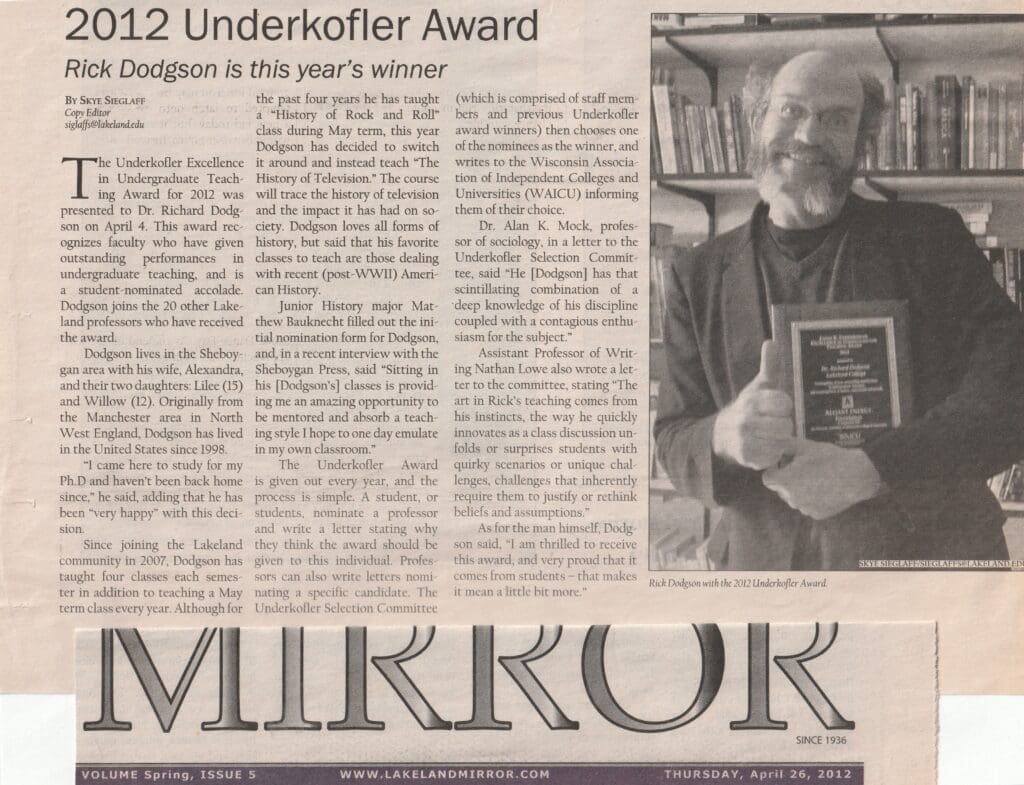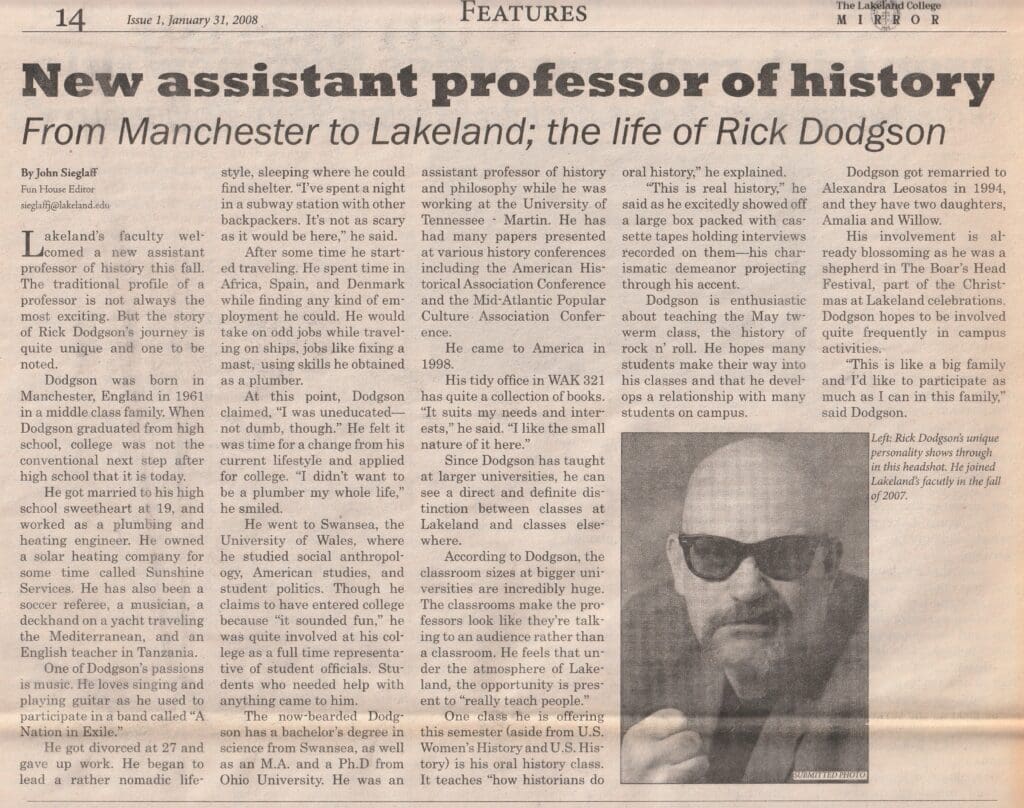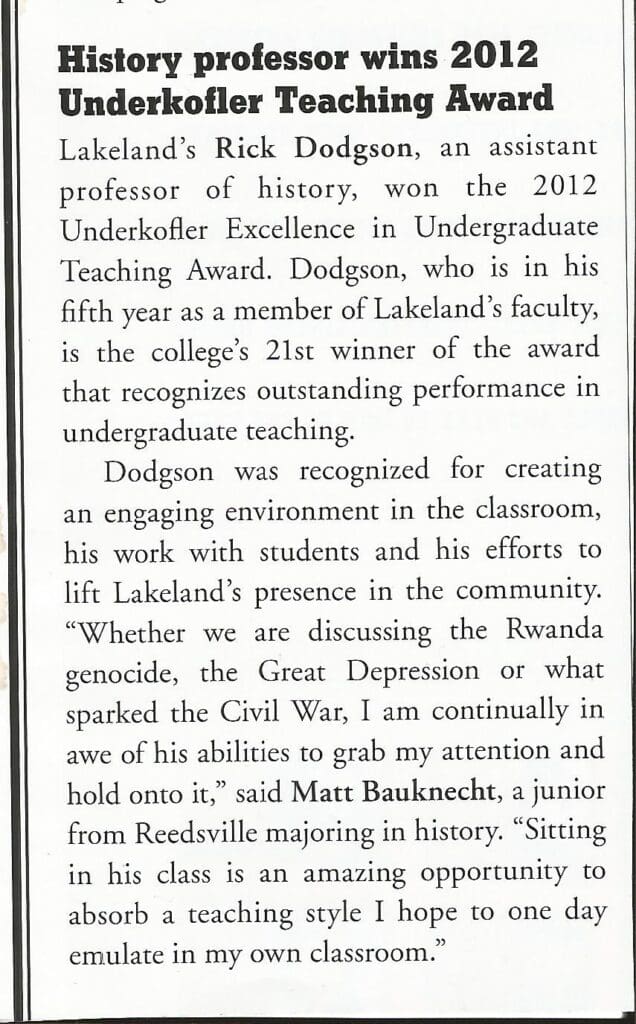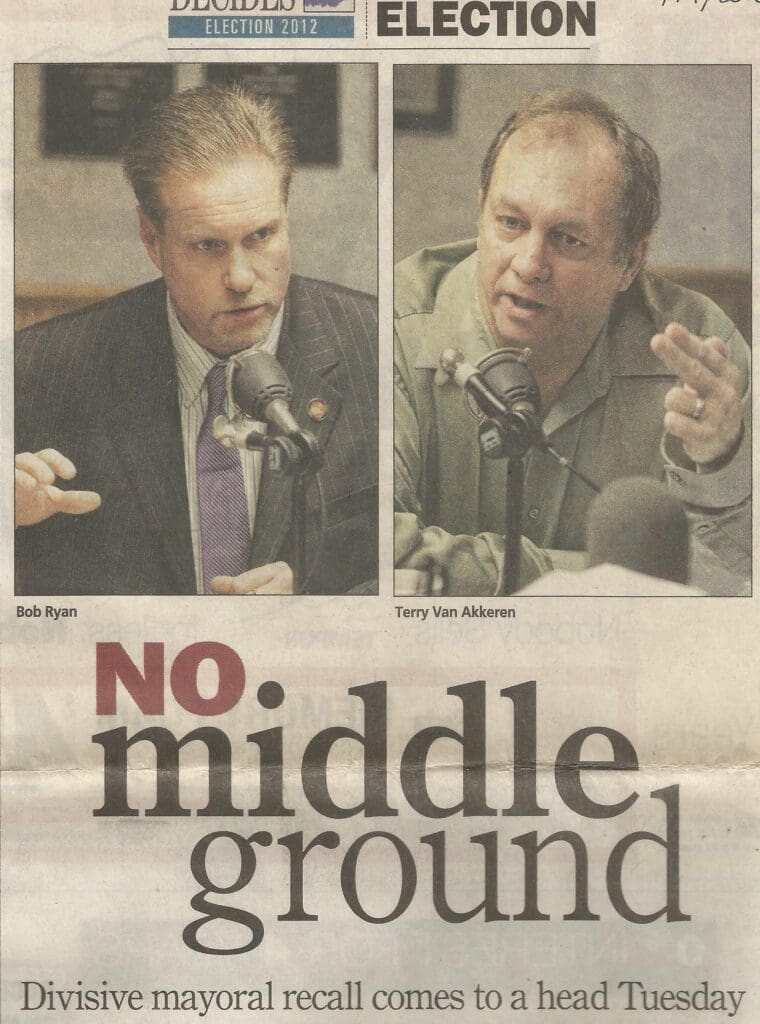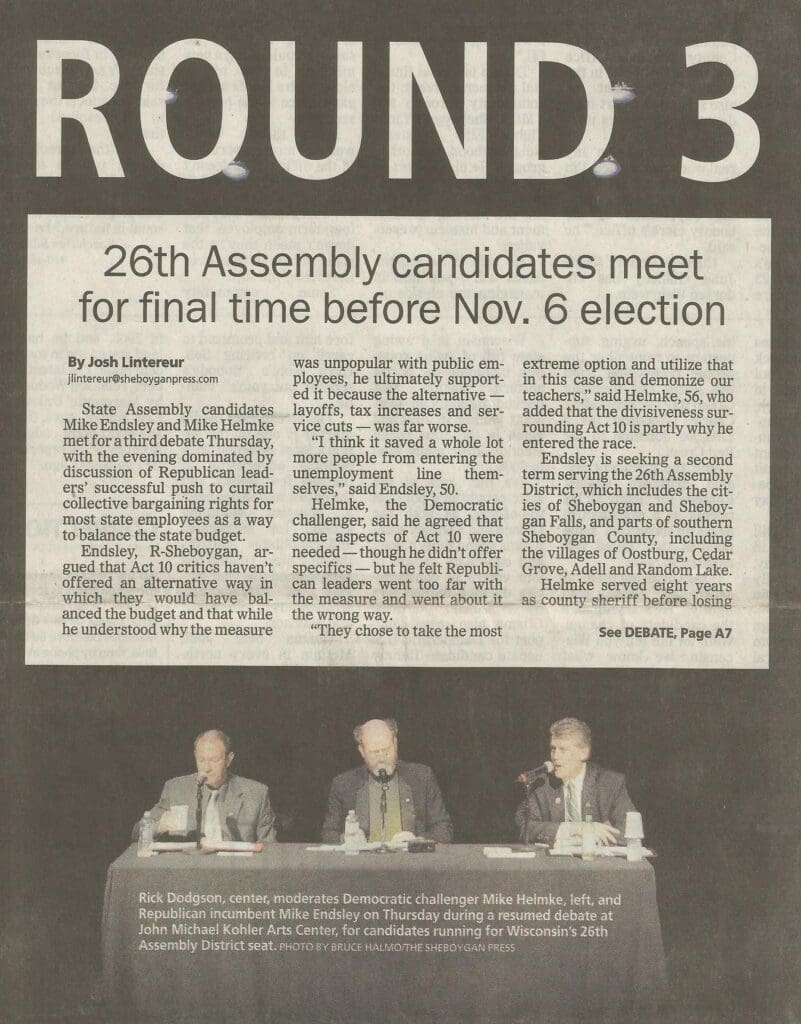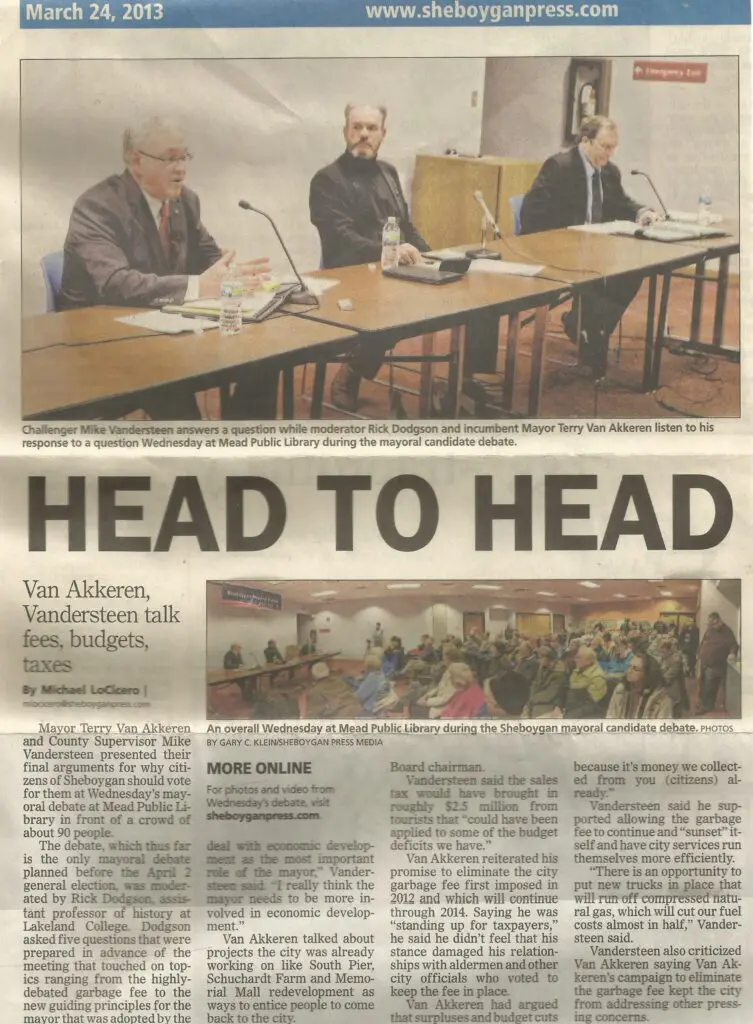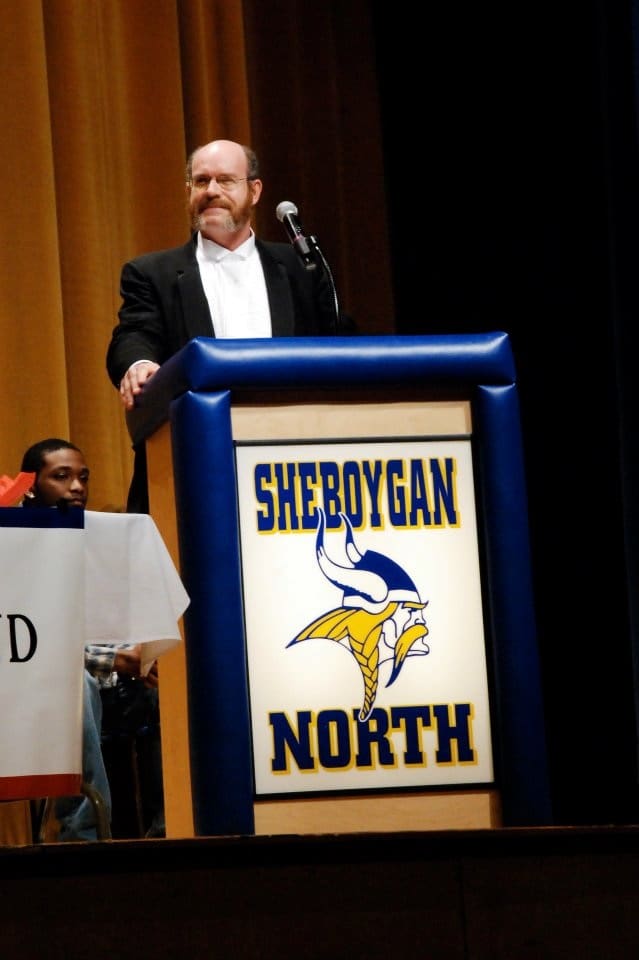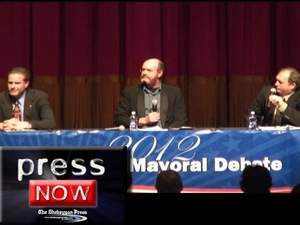ABOUT
Open Your Minds:
A Profile of Rick Dodgson by Ross DeRosier
While waiting to meet Professor Rick Dodgson, I’d been talking with Jessica Lillie, a fellow writer from Lakeland, and aspiring musician. When she learned why I was at the open mic night hosted by the Weather Center, the river-front coffee shop in Sheboygan, she lit up, “Oh, I love Rick!” Then rattled off three or four other monikers he’s picked up in the two years he’s been in the area.
“Hello Professor,” came a greeting from behind us. For some reason the greeting conjured images of a pro-wrestling match, “…and heeeere’s the Professor from off the top rope!” That idea turned out to be kind of fitting. If nothing else Rick looked like a bad-ass, and carried a celebrity-like aura, intended or not.
With his long beard, jeans, denim jacket, and black skull cap covering his shaved head, Dodgson looked like he’d be just as comfortable busting cue sticks over the backs of pissed up bikers, as he would be playing his guitar for the laid-back crowd at the coffee shop.
From the moment he walked in I knew he was a local celebrity. Seemingly anyone who wasn’t watching the two kids on stage was trying to get a word in with Dodgson. After a couple of minutes, he and I grabbed a corner table so he wouldn’t be on display during the interrogation. 15 minutes later, half of which was spent talking about a book he is writing, one of the young rockers started hanging around our table. I knew it was only a matter of time before he made his move.
Then it happened.
After a break in our conversation, the kid made an attempt to butt in by asking me about my voice recorder. When that got him nowhere, he mumbled something about if Dodgson was going to play that night.
“What’s that?”
“I just wish I could see you play tonight,” the kid mumbled.
“I don’t know what the list is. Who’s makin’ the list? You can’t just walk on, you’re just part of the list really,” replied Dodgson
Feeling his moment slipping from his grasp and wanting to be part of our cool little clique for as long as possible, the interloper asked if my recorder worked better with its attached table-top mic.
“Yeah, it sounds a lot better,” I said.
“Anyway,” Dodgson jumped in, laughing, “piss off while I answer this guy’s question.”
Only he, with his with his gentle cheekiness, British accent, and sense of humor, could put it like that without crushing the poor kid’s spirits. After his admirer left, the mood seemed to have shifted. Soon the itch to get on stage became too much for him to bear bare. Opening with a heartfelt song about life’s tendency towards unpredictability, the “Professor” held his audience mesmerized for the last ten minutes of the night.
On my way home from our meeting I was left wondering, “Just who the hell is Rick Dodgson?”
Rick entered the world just in time for the tumultuous age of the sixties. Born on August 18, 1961 near Manchester, England, it was only natural for young Rick to develop an idealistic world-view. Coming of age toward the tail-end of that period, he grew up idolizing figures like John Lennon and other idealistic dreamers of the era. However, despite the revolutionary atmosphere, according to Rick, his childhood was pretty average.
“I think I had a happy, settled, unremarkable childhood. We moved when I was eleven years old, and I guess that was about as traumatic as my childhood got; having to go to a new school just when I was starting high school. But other than that, I don’t think my childhood was very remarkable.”
Despite his unremarkable childhood, Rick cultivated a plethora of interests over the years “I’ve always been (pronounced bean in his English accent) kind of average, or averagely good at most sports… on an amateur level. I don’t think I’d make any varsity team, but I’d be havin’ a good time. I used to play basketball in high school, although I wouldn’t pretend to be able to play on this side of the Atlantic.”
After high school Rick jumped right into life feet first. After struggling through senior-high with mediocre grades, six months after graduation he found himself married to his high-school sweetheart. This, his first marriage, lasted about eight years, during which he worked as a plumber. After things fell apart Rick got the hell out of Dodge, or rather out of Manchester, and traveled for the next two years, trying to make sense of the world. In addition to seeing much of Europe, Rick spent some time in Tanzania, where he discovered a lot about himself.
“When I was in Tanzania, it was uncomfortable for me. I wasn’t sure of any of the rules… the rules of social engagement, and communications are just different, and that puts you in a position of uncertainty. Plus for the first time in my life I was the odd face in the room. I was the person from a different place, with a different background, with a different colored skin… although that was just the least of it. Far more [frightening] was this cultural stuff… you had no idea what people were thinking... It (traveling abroad) makes you examine who you are, and where you come from. It makes you realize that many of the values and the ideas that you hold hard and fast about the world, can’t be that hard and fast…because someone else is living their life as effectively, as efficiently, as completely as you are, and yet their values are different,” adding, “Everyone should travel. Open your minds.”
After his two years of traveling, Rick ended up back in the U.K. living in Swansea, where he would start college at the age of 28. While attending the University of Wales in Swansea, he fell into the local surfing scene. He didn’t know it before enrolling, but Swansea happened to be the university surf capital of Great Britain. Rick and his buddies would take surfing trips to what’s today known as the Hawaii of the Atlantic, the Canary Islands; specifically, Lanzarote, with its prehistoric landscape of volcanic black rock.
Now living in Sheboygan, the Surf capital of the Mid-West, Rick can be seen “paddlin’ around like a seal on a board” in Lake Michigan. He modestly claims to be terrible at the sport. However, after twenty years surfing, I’d be willing to bet that he can hold his own. Well, at least on an amateur level. Also, while at UW-Swansea Rick met his second, and current wife, with whom he has two daughters. When Rick finished his bachelor’s degrees, he came directly to the States in pursuit of his Masters at Ohio University. After graduating he moved back to Swansea, where he bought and rebuilt a cabin in the woods. Once settled Rick put his plumbing skills to work and opened a small business, Sunshine Services, specializing in solar powered water heating system installation.
Eventually becoming restless he uprooted the family and moved back to the States. Sticking with familiar territory they ended up back in Ohio, where Rick would earn his PhD, like his Masters, from Ohio University. Seven years later Rick took a temporary teaching position at the University of Tennessee, and a year after that, in 2007 at the age of 46, he accepted his first tenured teaching position at Lakeland College in Sheboygan, Wisconsin.
Today, Rick seems to have settled down a bit. With a family and a new career, he doesn’t travel much anymore. “I just don’t have a lot of time. And, I have lots of other interests to fill my life. It’s not the same sleepin’ on a floor when your 48 or sleepin’ rough on the streets of Barcelona, which I did when I was in my twenties… I ah… probably wouldn’t do that now…” adding with a smile and a laugh, “but you guys should.”
These days Rick can be found floundering in Lake Michigan instead of the Atlantic, jamming around southeastern Wisconsin instead of South Wales, or contemplating how to improve his teaching instead of how to install solar panels. But for the most part Rick seems to be the same guy as he was before; still active, thoughtful, and dedicated. Now, his focus is on perfecting his new craft, which is educating young, or old, adults.
“I’m working on improving my teaching. I’d like to become the best teacher that I can be… I can’t imagine a job more suited to my personality right now. I mean intellectually, ya know, I get to think about things and discuss history and ideas with students. My whole existence, beyond the mundane aspects of it, is caught up with obtaining knowledge and thinking about interesting stuff.”
Let Me Introduce Myself
Let me introduce myself. I’ll start with the basic academic stuff.
I'm English by birth, but I’ve spent most of my adult life studying and teaching in the United States. I have degrees in American Studies and Social Anthropology (BSc. Econ., 1994), Political Theory (M.A., 1995), and U.S. History (Ph. D., 2006). My academic interests are broad, encompassing the study of history, politics, pop culture, and social movements. I also question the meaning of life on a daily basis. Since 2007, I have worked as a History Professor at Lakeland University, in Sheboygan, WI.
I’m most interested in the 1960s, a period that I’ve focused on and written about throughout my academic career. My book, It’s All a Kind of Magic: the Young Ken Kesey, published in 2013 by the University of Wisconsin Press, is a portrait of the early life of Ken Kesey, author of One Flew over the Cuckoo’s Nest and Sometimes a Great Notion, and celebrated icon of the 1960s psychedelic counterculture. The book was well received, picking up good reviews in several prominent newspapers (San Francisco Chronicle, Seattle Times, Portland Oregonian), various websites (Huffington Post, HNET 1960s, Kirkus Reviews), and some prestigious academic journals, including the Journal of American History and the Journal of American Studies.
My route to academia was not exactly direct. I was born and raised in the northwest of England in a place called Cheadle, Cheshire, just outside of Manchester. My father was a businessman, a racing car driver, and later an airline pilot for British Airways. My mother worked as a nurse but became a stay-at-home mom once my sister and I came along. We had a typical English village existence—school fetes, my father played cricket, Sunday school, tennis club socials—even though we lived only 20 miles away from Manchester, a huge industrial metropolis that we rarely visited. The family's only claim to distinction came from sharing the same name and Cheshire origins as Lewis Carrol (né Charles Ludwig Dodgson) of Alice in Wonderland fame, but I've never seen any proof, nor any royalty checks to indicate that we are blood relatives.
When I was eleven, my family moved to a place called Golborne, Lancashire, a coal mining town that was much more working class than my Cheshire accent and upbringing. That was a tough transition. In high school, I was an idealistic wannabee hippie, inspired by John Lennon to imagine answers to the world's problems in love, compassion, and understanding. I missed the sixties by a decade, but they still cast a long shadow into the 1970s that influenced my early life.
I just about had the grades to get into university, but not the inclination. I chose to learn a trade instead, much to the consternation of my father. He had hoped for a more professional career for me in science or engineering, but I was determined to follow my own path. With the hubris that only teenagers can muster, I told my parents that I was inspired by Mahatma Gandhi’s dictum that manual work was intrinsically holy. It was tough to argue with Gandhi, even for my father. Then I told him that I was getting married to my high school girlfriend.
I took a position with a local construction company that offered me a four-year plumbing apprenticeship. I went to a technical school for six months straight, then once a week for three and a half years until I earned my very medieval sounding “City and Guilds Certificate in Plumbing and Heating.” Once qualified, I worked on various domestic and industrial construction sites around Manchester and Liverpool.
I was good at it. I won awards as an apprentice, and because of my ability to do old-fashioned leadwork—still a feature in British plumbing—I got to do restoration work on some fascinating buildings, including a stately Manor home from the 1600s, nestled in the Lancashire countryside, and a grand Victorian railway station in Chester, one of the oldest cities in England. I’ve probably got more lead in my blood than most, but I’ve never felt any adverse health effects from all my exposure to it (others might beg to differ).
I really enjoyed working with my hands—I still do—and I got to be pretty good at my trade. I could install all the finished plumbing and heating in a new house—kitchen, half bathroom, full bathroom, hot water system, boiler and radiators—in about four days. However, I was always something of an oddity on the building site. Let’s put it this way, I was the only one in my company van going on Campaign for Nuclear Disarmament marches at the weekends and reading the broad sheet Guardian at the lunch table.
Everyone else was ogling a topless Samantha Fox on page 3 of the Sun, a popular tabloid of the day. I would feign disinterest to maintain my punk feminist credentials and then sneak back later for a peak when no-one was looking.
I’ve never regretted the decision to pick up a trade. It has enriched my life immeasurably, allowing me to start my own business, build my own solar-powered house in Wales, work on sailing boats in the Mediterranean and the Gulf of Mexico, and plumb my way through college without accumulating any debt. It also taught me about hard work, gave me real insight into the lives of ordinary working folks, and it left me with the ability to talk to most people, regardless of background or class. A large part of my adult identity comes out of these early years—my accent, my humor, my politics, my class sympathies—even though my life went in a very different direction in the years to follow.
After five or six years “on the tools,” I grew tired of the permanently scuffed knuckles, sore knees and aching back that came with the job, and so I started working in the office as a trainee estimator and small project manager. I held that position for a couple of years before deciding to return to Higher Education. I figured ten years with dirt under my fingernails was enough to pay off my spiritual debt to Gandhi.
In the autumn of 1989, I arrived at Swansea University, Wales, to study American Studies and Social Anthropology with Jon Roper and Phil Melling. As part of my studies, I spent a year as an exchange student at Ohio University, in Athens, OH, and I also took a sabbatical to serve as the elected Student Welfare and Education Officer, for the local National Union of Students (NUS). For my summer job, I would make my way to the South of France where I used my plumbing skills to find work on boats on the Mediterranean. I would later do the same work in the Gulf of Mexico, working out of Venice, Florida.
Travel was a passion during this part of my life. Prior to going to University, I visited and worked odd jobs in London, Scotland and Gibraltar and I travelled to Denmark, Greece and the USA. I spent a month living in a village on the slopes of Mt. Kilimanjaro in Tanzania in the late 1980s, and another couple of months living in Spain as I prepared to take some examinations that would get me into university.
I graduated from Swansea in 1994 with a BSc Econ. in American Studies and Social Anthropology. I immediately headed back to Ohio University where I had been offered a full scholarship to do an MA in Political Science. I graduated from that program in 1996, and then took a few years off from studying to start a business in Wales, get married to my college sweetheart and start a family.
In the autumn of 1989, I arrived at Swansea University, Wales, to study American Studies and Social Anthropology with Jon Roper and Phil Melling. As part of my studies, I spent a year as an exchange student at Ohio University, in Athens, OH, and I also took a sabbatical to serve as the elected Student Welfare and Education Officer, for the local National Union of Students (NUS). For my summer job, I would make my way to the South of France where I used my plumbing skills to find work on boats on the Mediterranean. I would later do the same work in the Gulf of Mexico, working out of Venice, Florida.
Travel was a passion during this part of my life. Prior to going to University, I visited and worked odd jobs in London, Scotland and Gibraltar and I travelled to Denmark, Greece and the USA. I spent a month living in a village on the slopes of Mt. Kilimanjaro in Tanzania in the late 1980s, and another couple of months living in Spain as I prepared to take some examinations that would get me into university.
I graduated from Swansea in 1994 with a BSc Econ. in American Studies and Social Anthropology. I immediately headed back to Ohio University where I had been offered a full scholarship to do an MA in Political Science. I graduated from that program in 1996, and then took a few years off from studying to start a business in Wales, get married to my college sweetheart and start a family.
In 1998, we all returned to Athens, OH so that I could begin studying for my PhD in American History at the Ohio University Contemporary History Institute. I worked with noted historians such as Joan Hoff and Alonzo Hamby as I continued to focus on the history of the 1960s. By good fortune, I made contact with Ken Kesey, who helpfully agreed to be the subject of my studies. After several trips to Oregon to meet with Kesey and work in his archives, along with conducting numerous interviews with associated friends and family, I eventually completed an 800-page dissertation entitled, Fun for the Revolution of It: A History of Ken Kesey and the Merry Pranksters.
I graduated from OU in 2006 with my PhD in hand but no job offers, so we started making plans to go back to the UK. Out of the blue, I was offered a one-year position at the University of Tennessee at Martin to teach U.S. and Asian history. Without this opportunity, my life would have taken a very different course. The following year, 2007, I accepted a tenure track position at Lakeland College (now University), and I’ve happily been there ever since.
My route to academia and ultimately Lakeland may have been somewhat circuitous, but I treasure it all. My adventurous life has given me a wealth of valuable experiences, broadened all my horizons, inspired my creativity, and ultimately made me who I am.
Rick Dodgson, October 1, 2024
